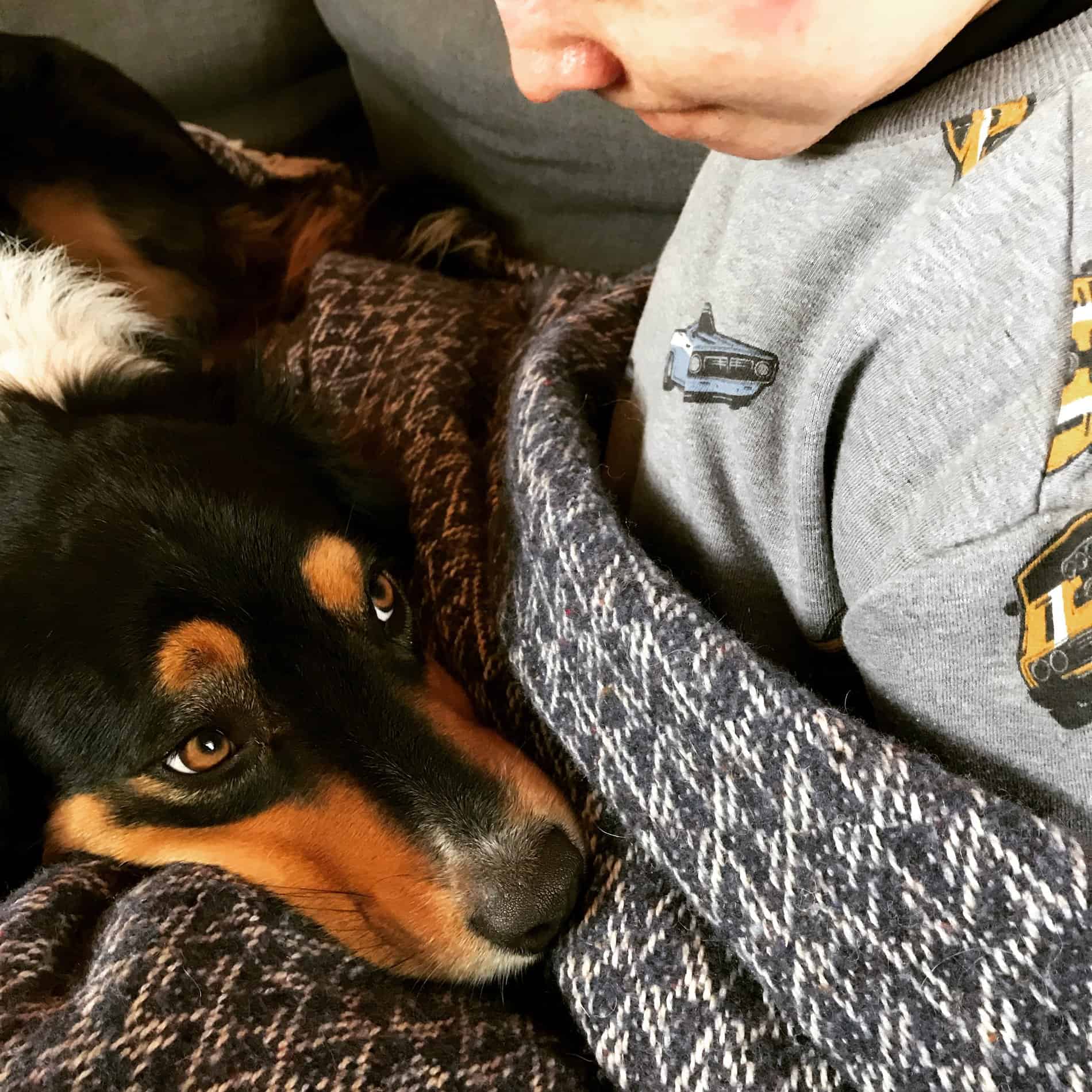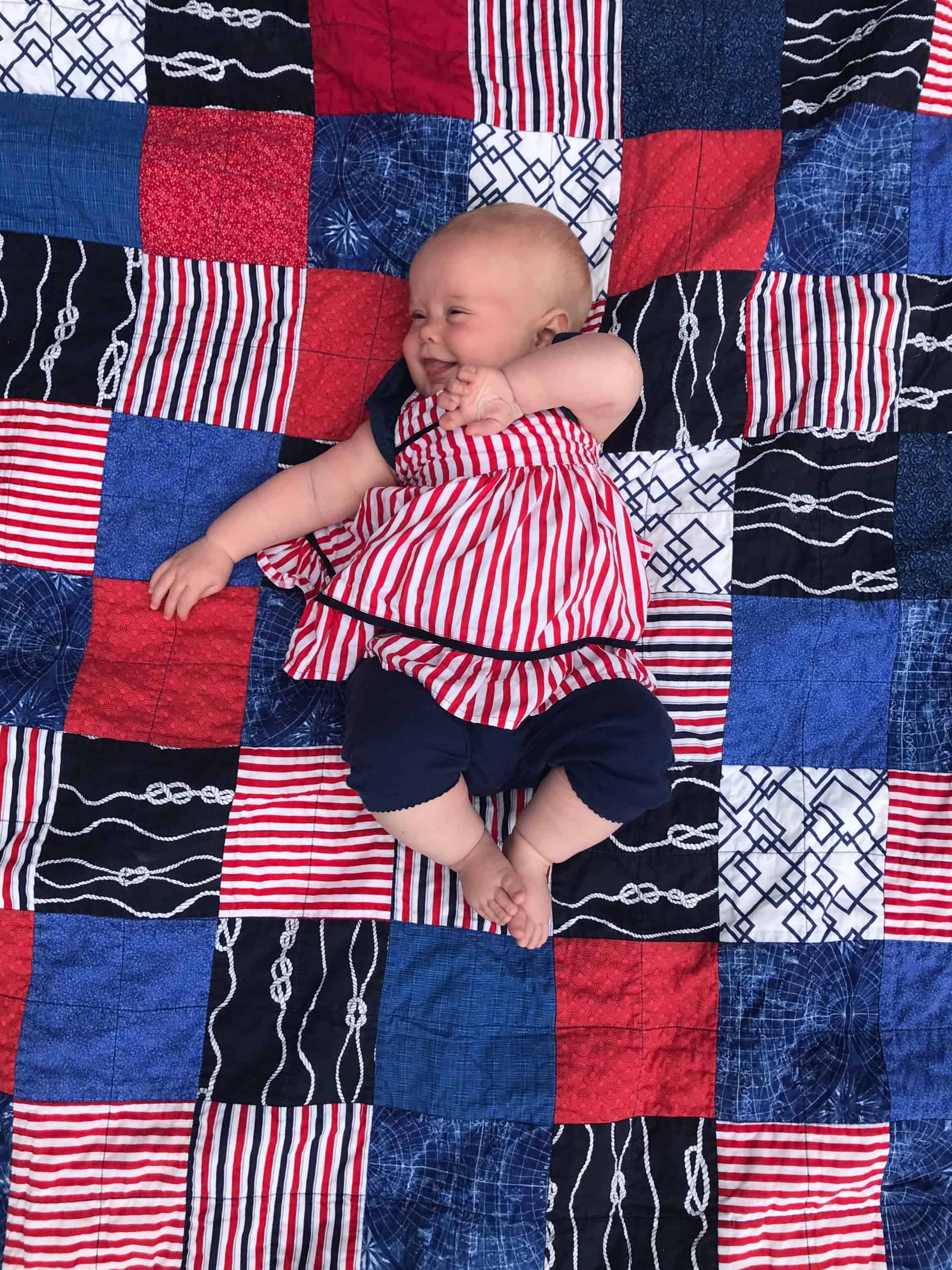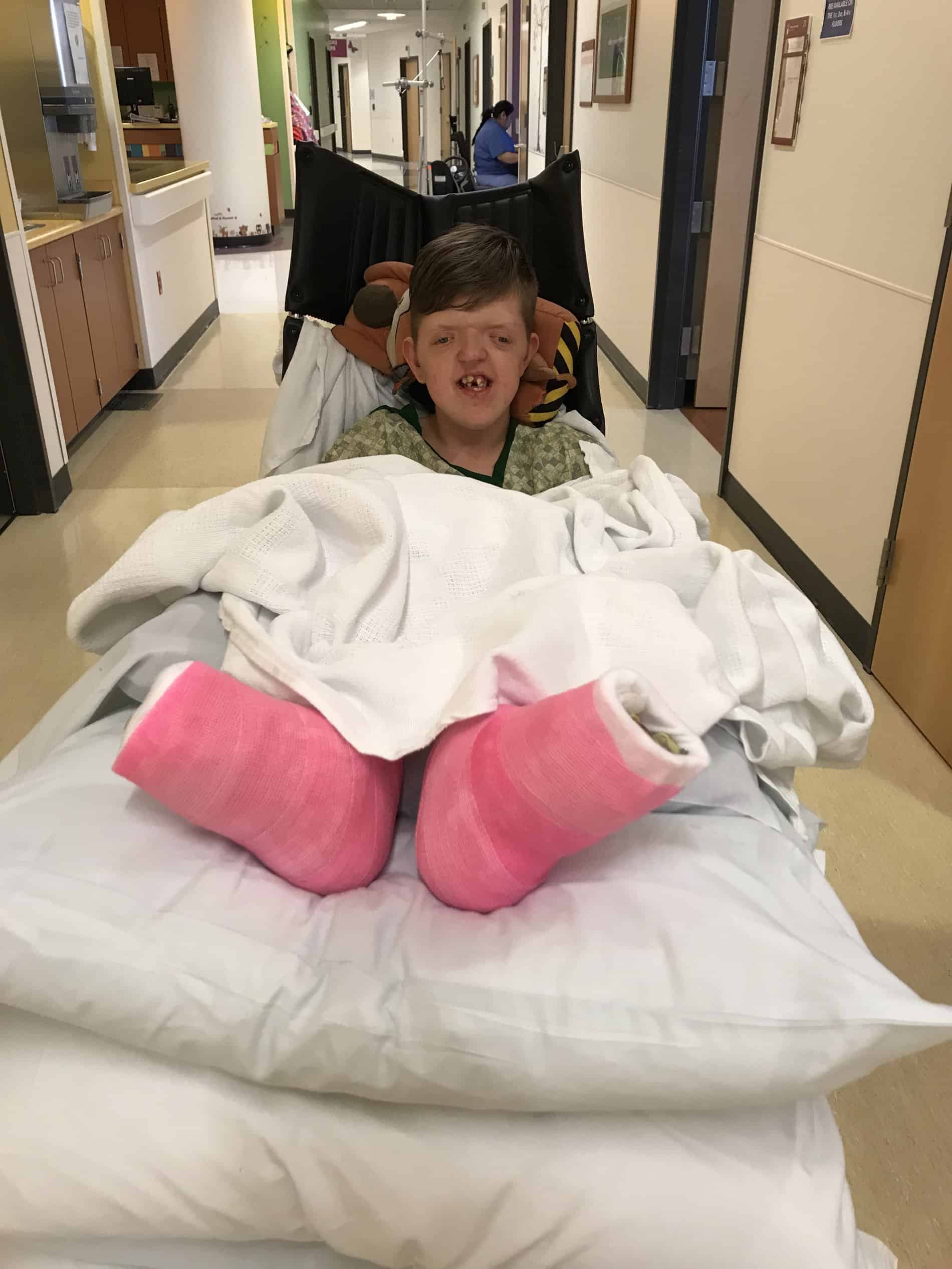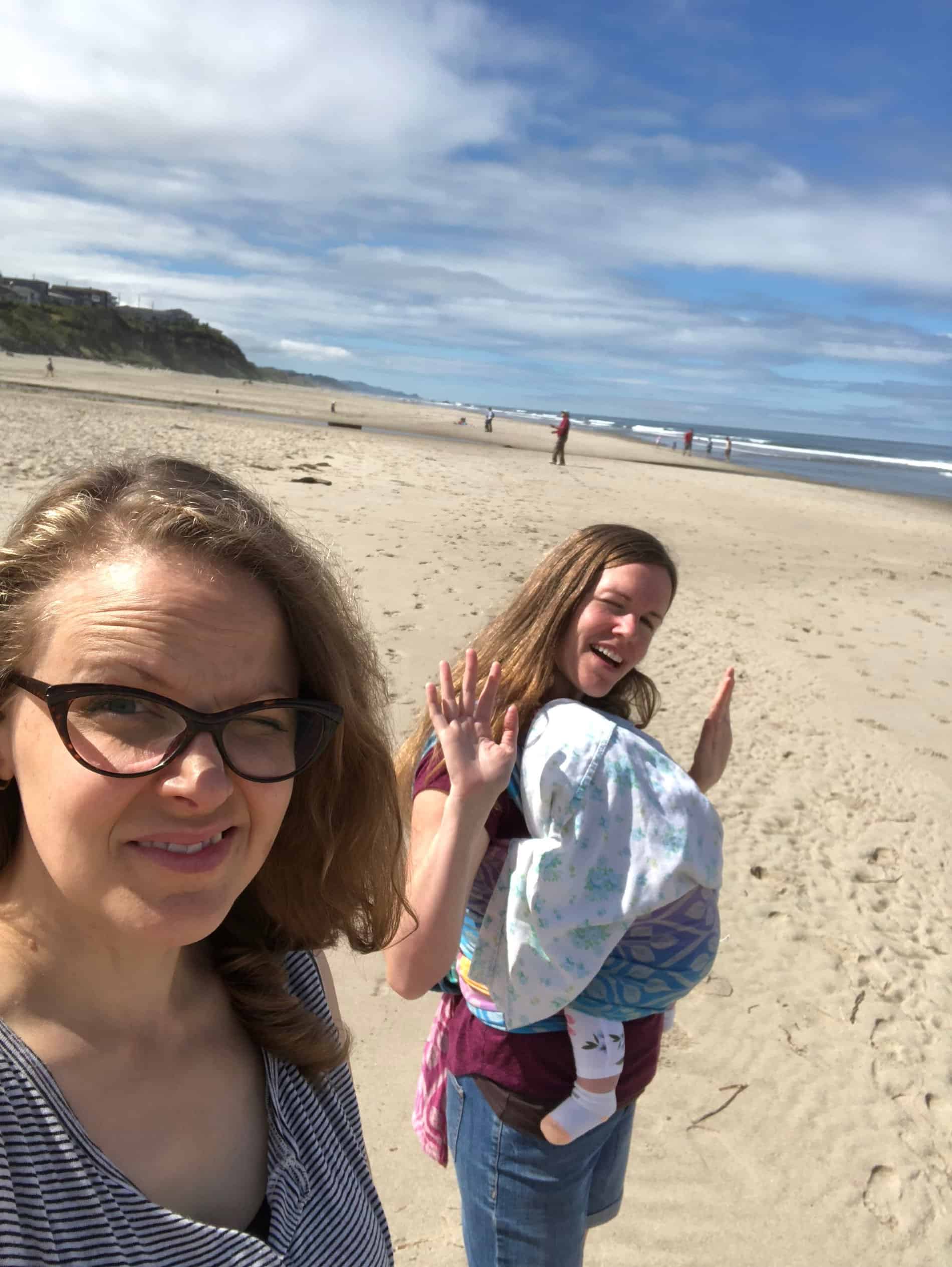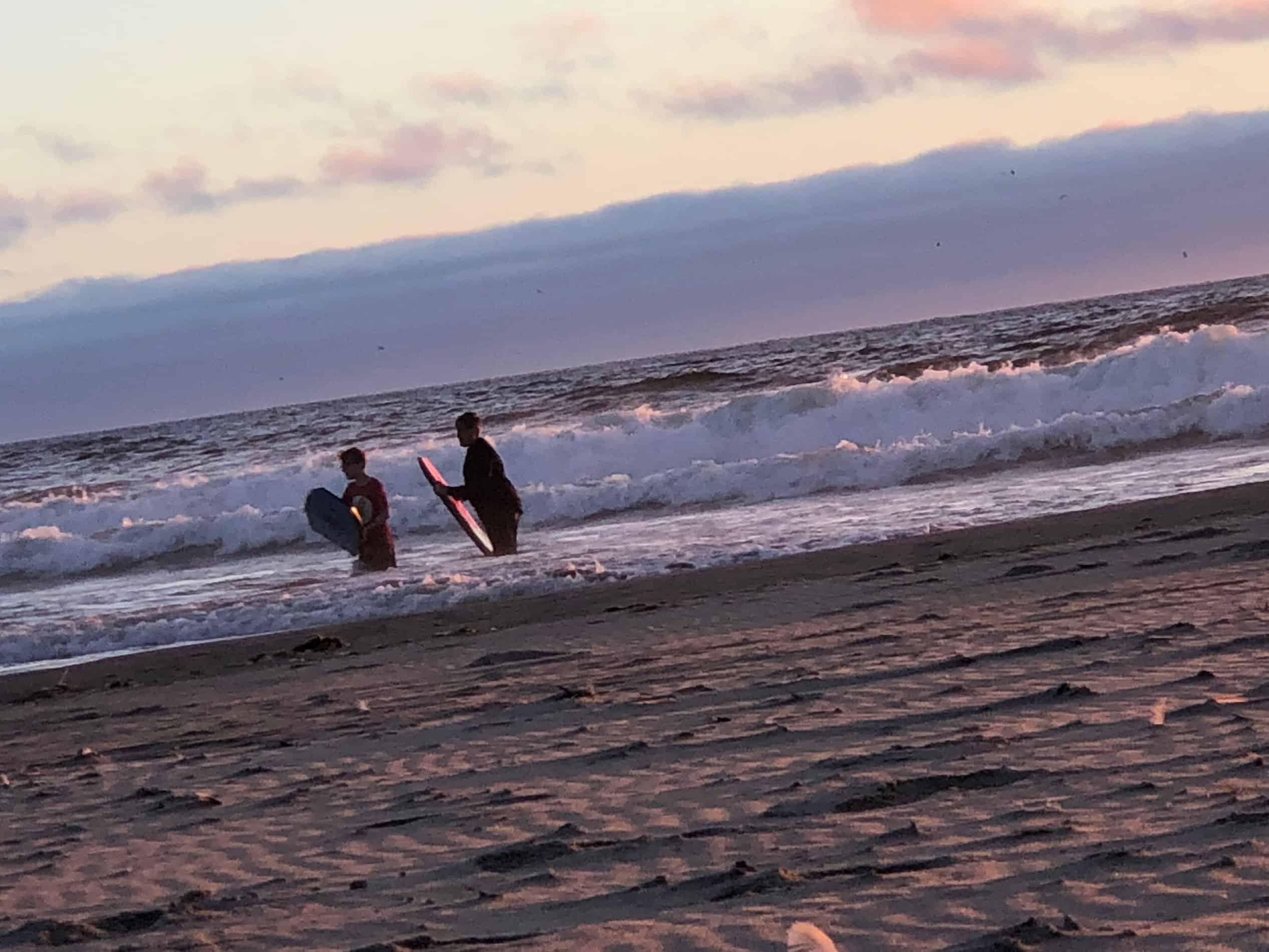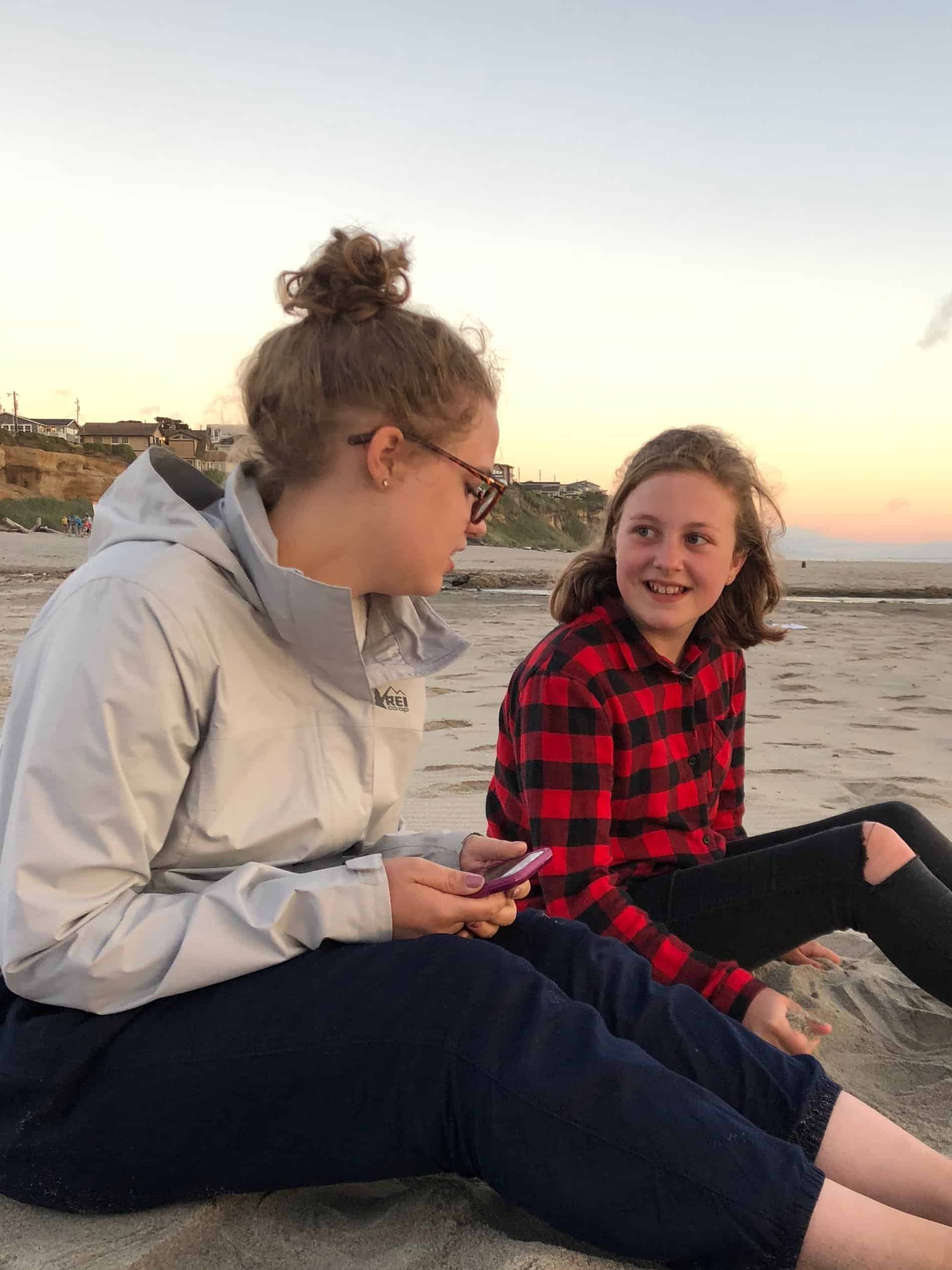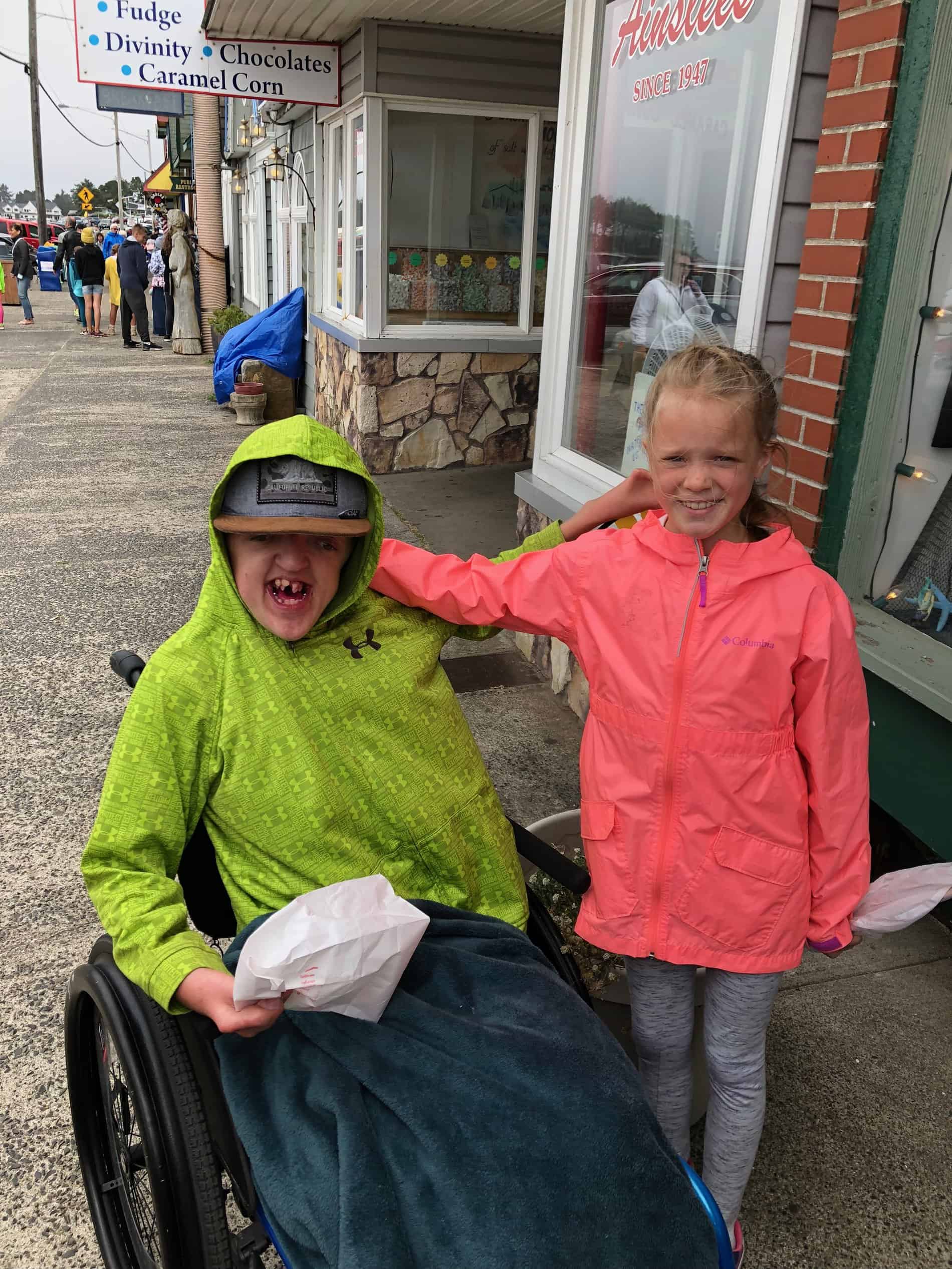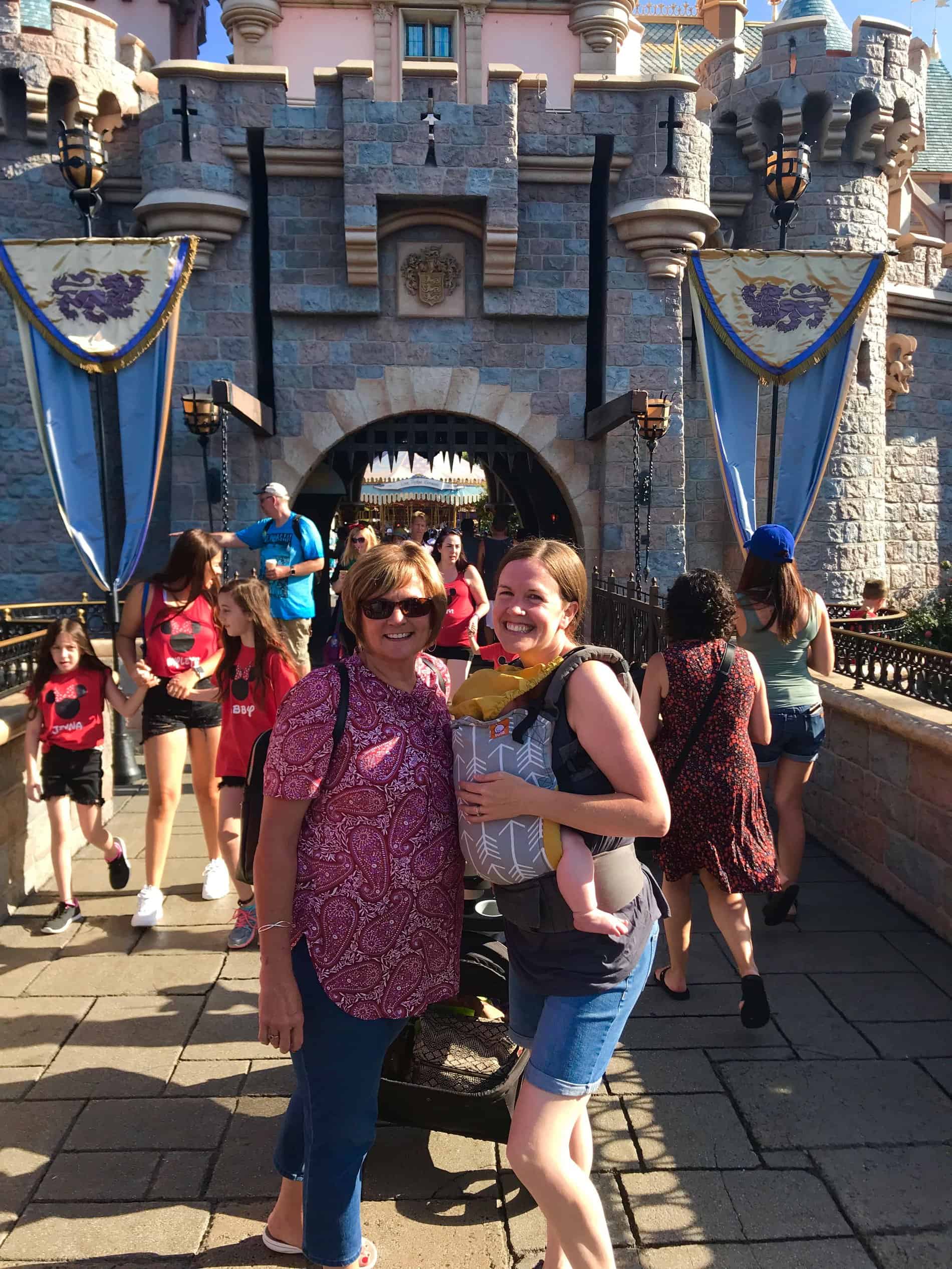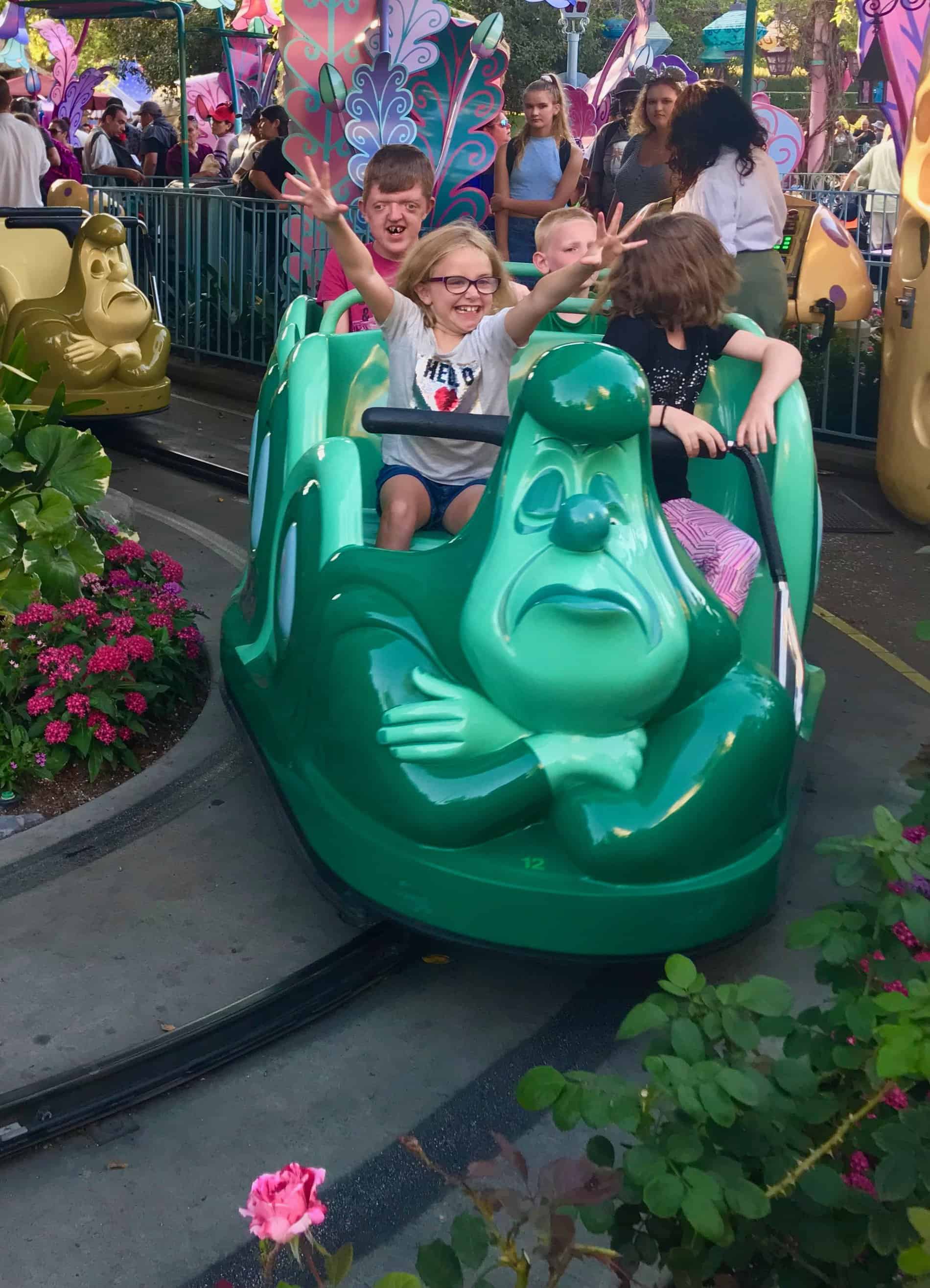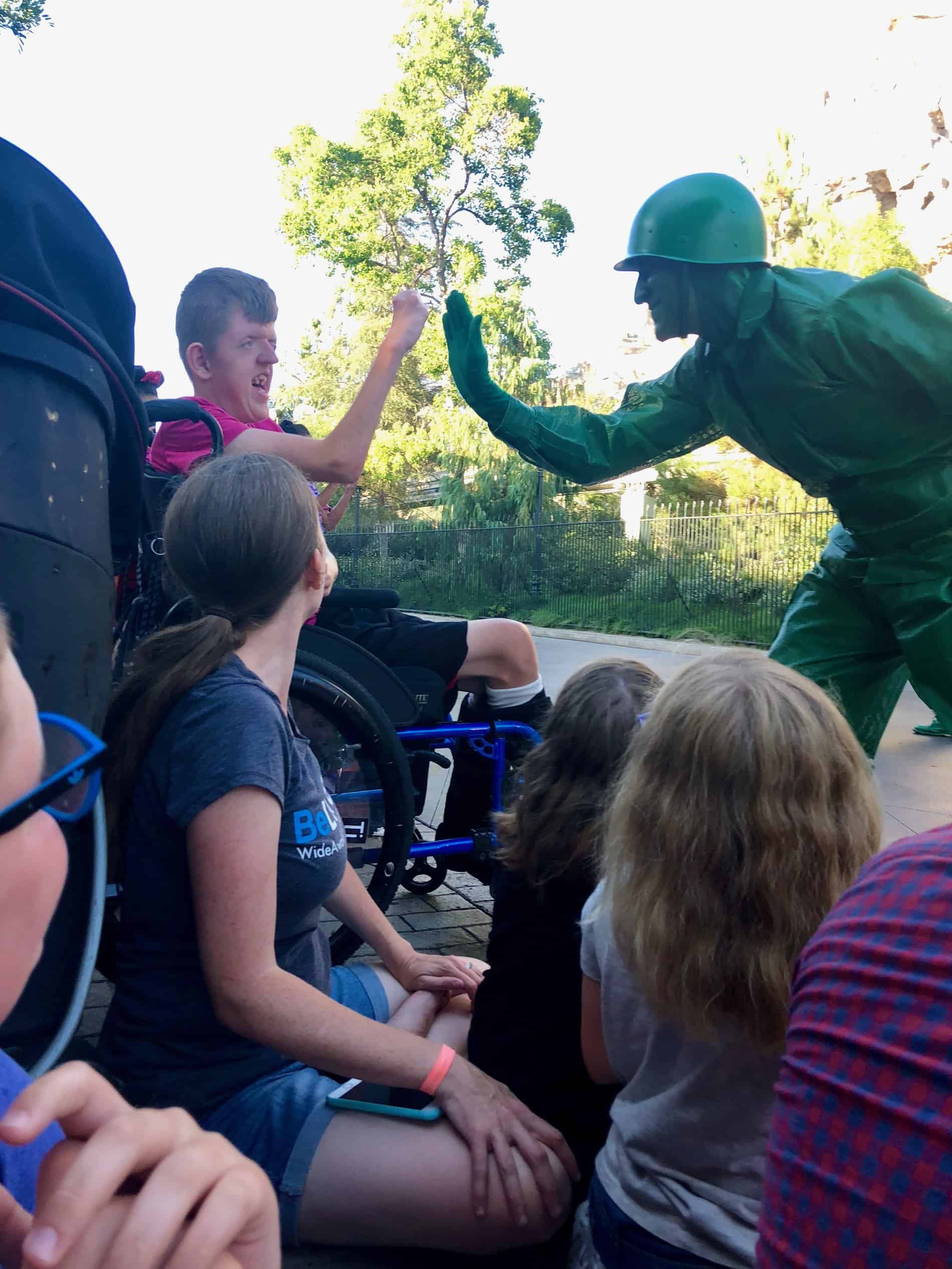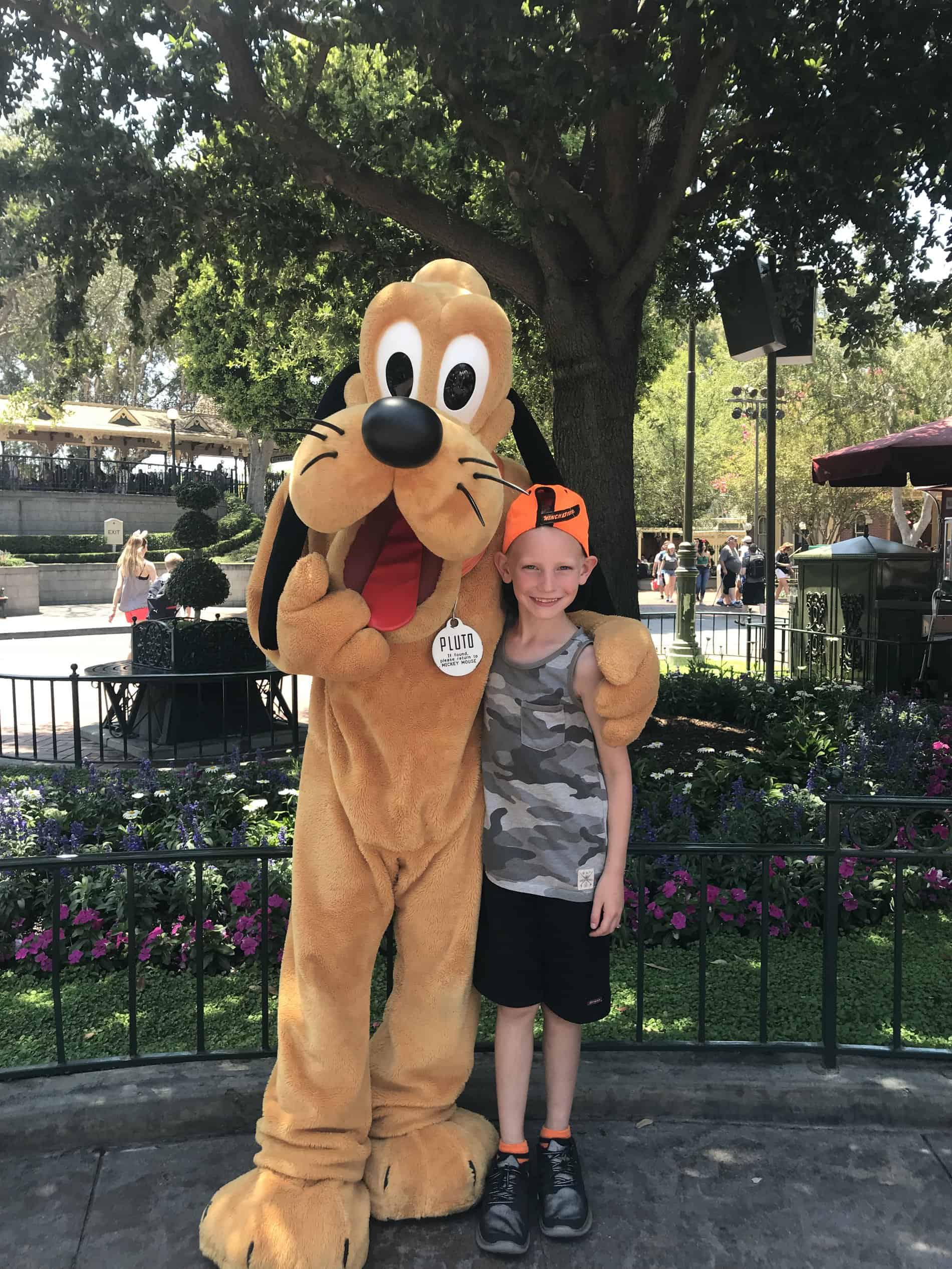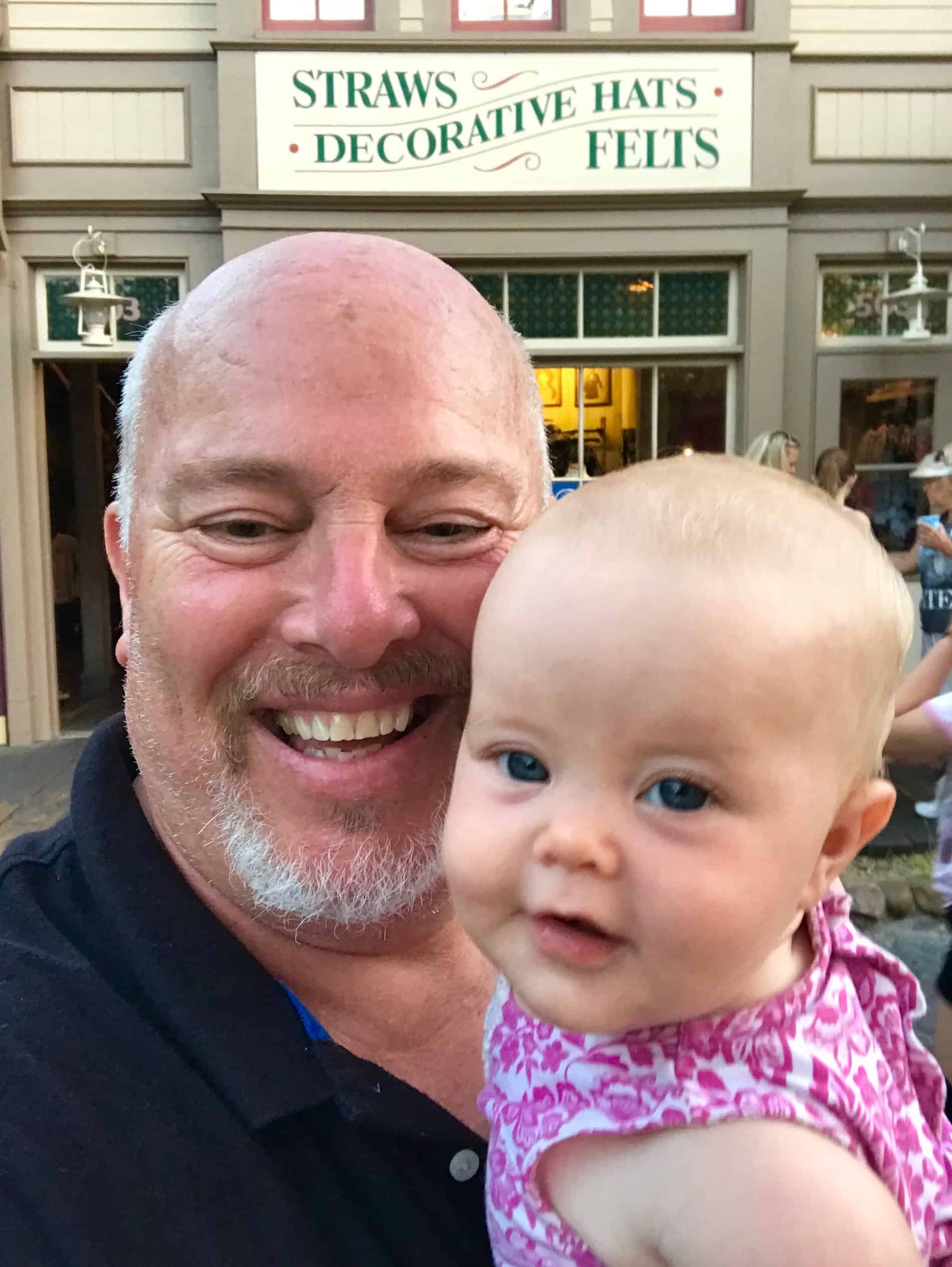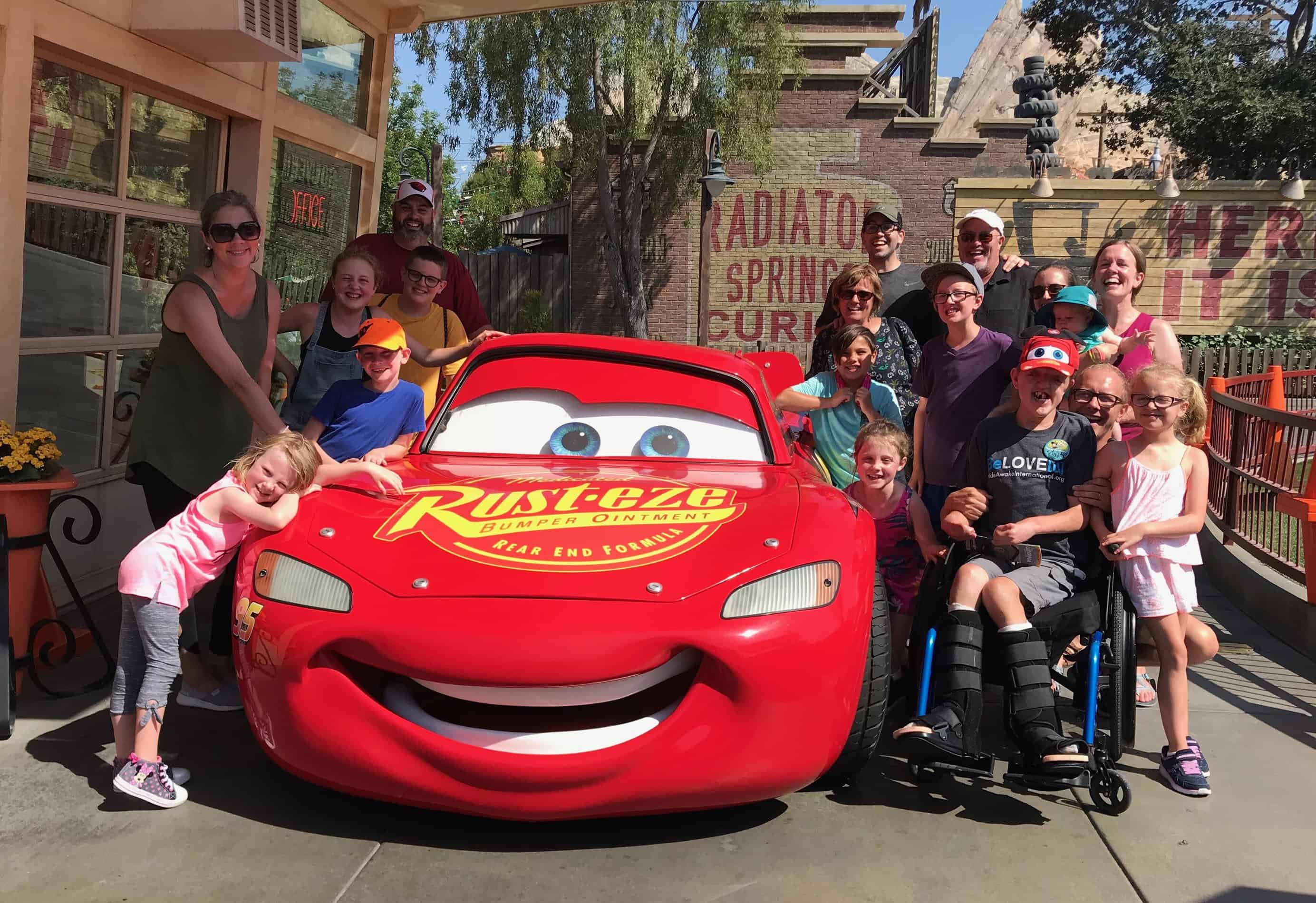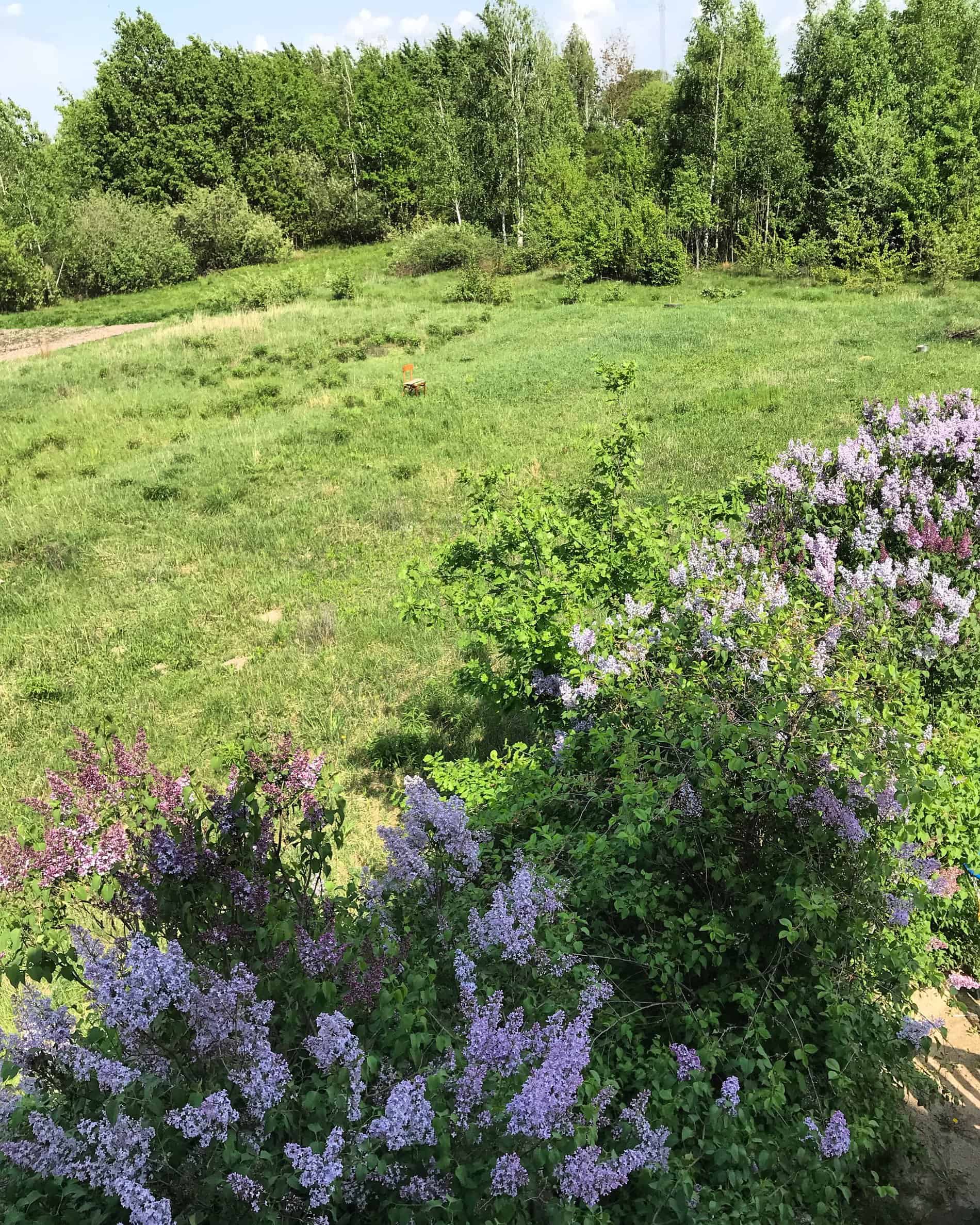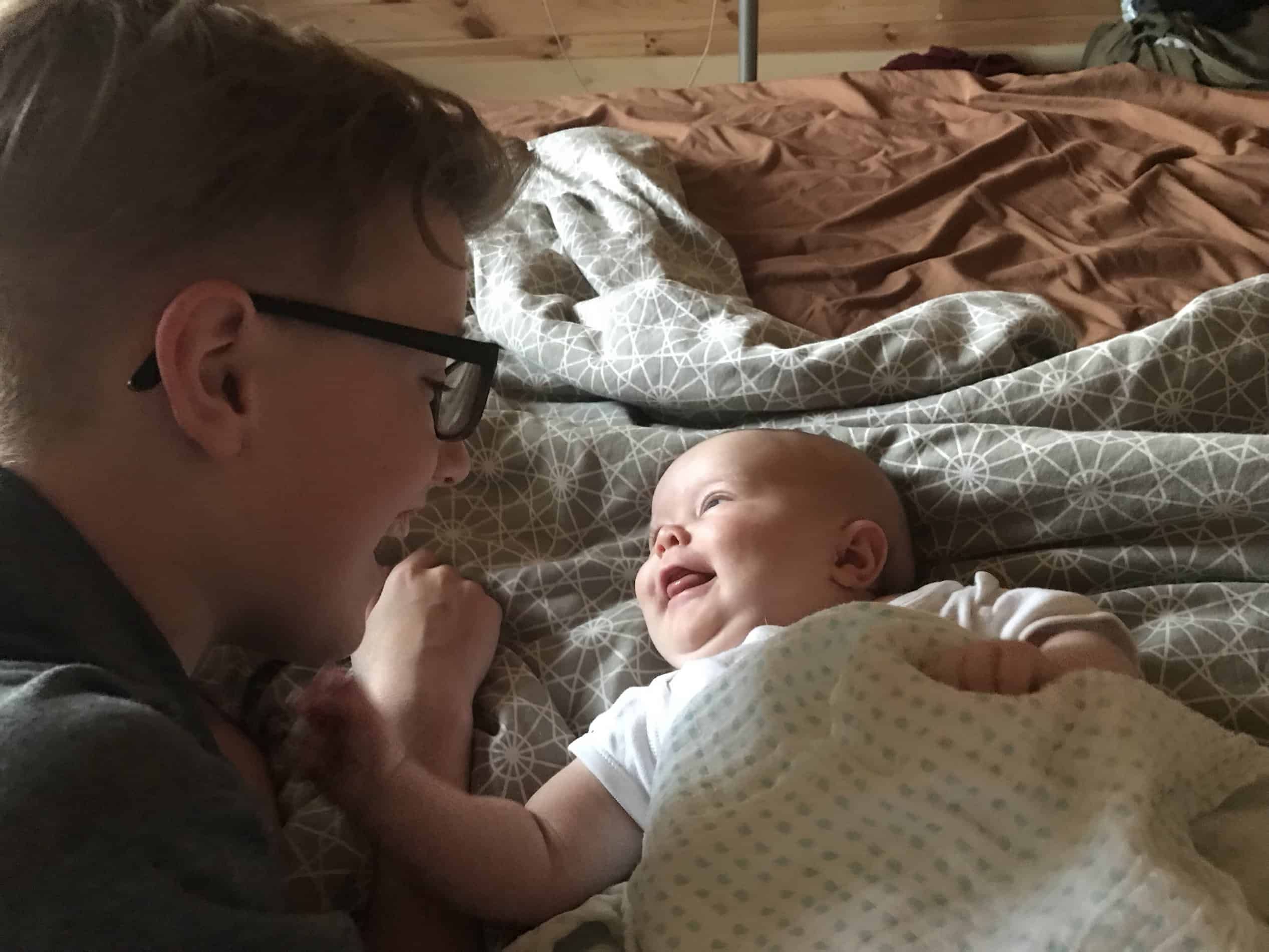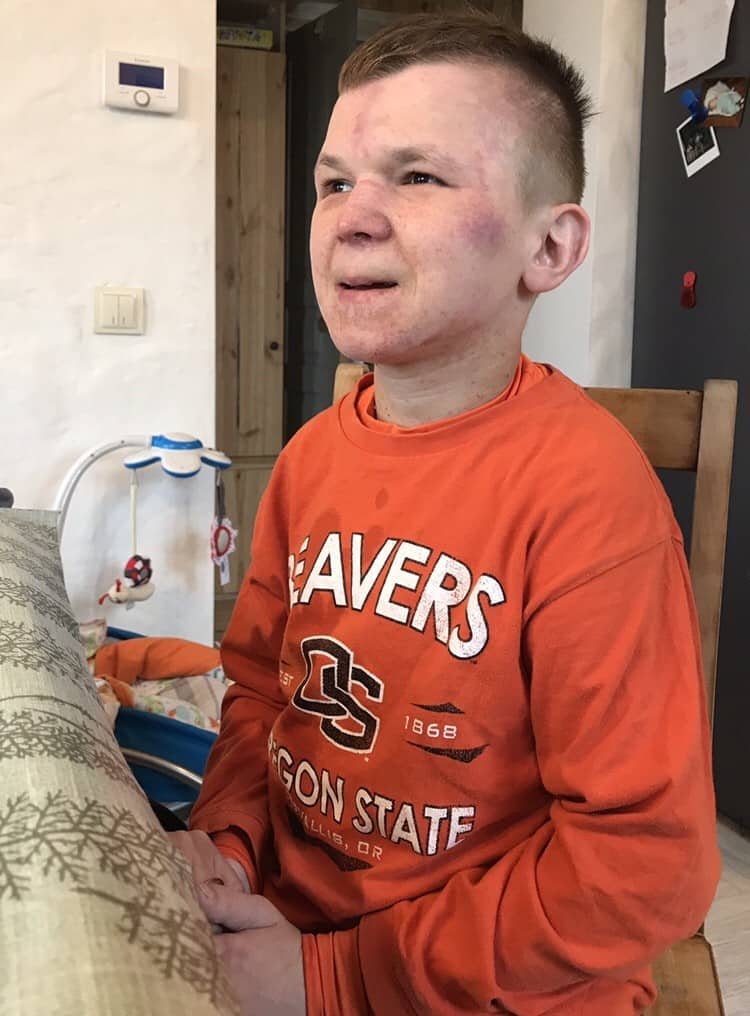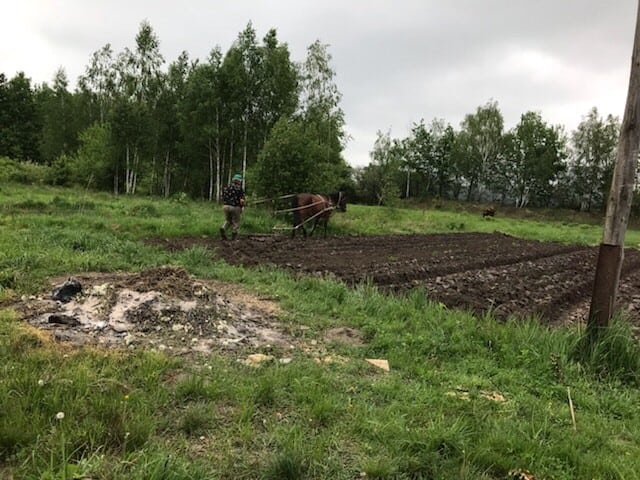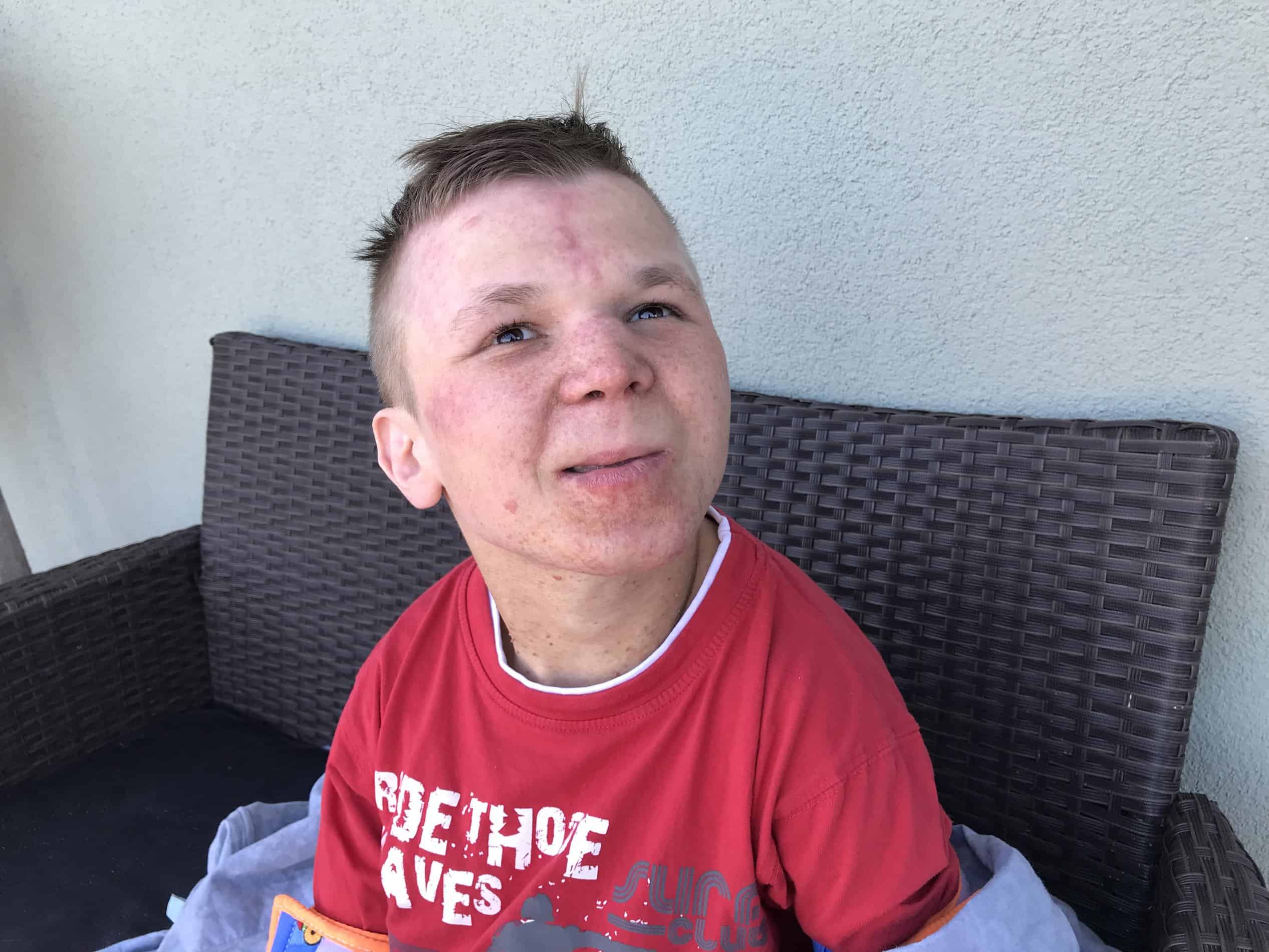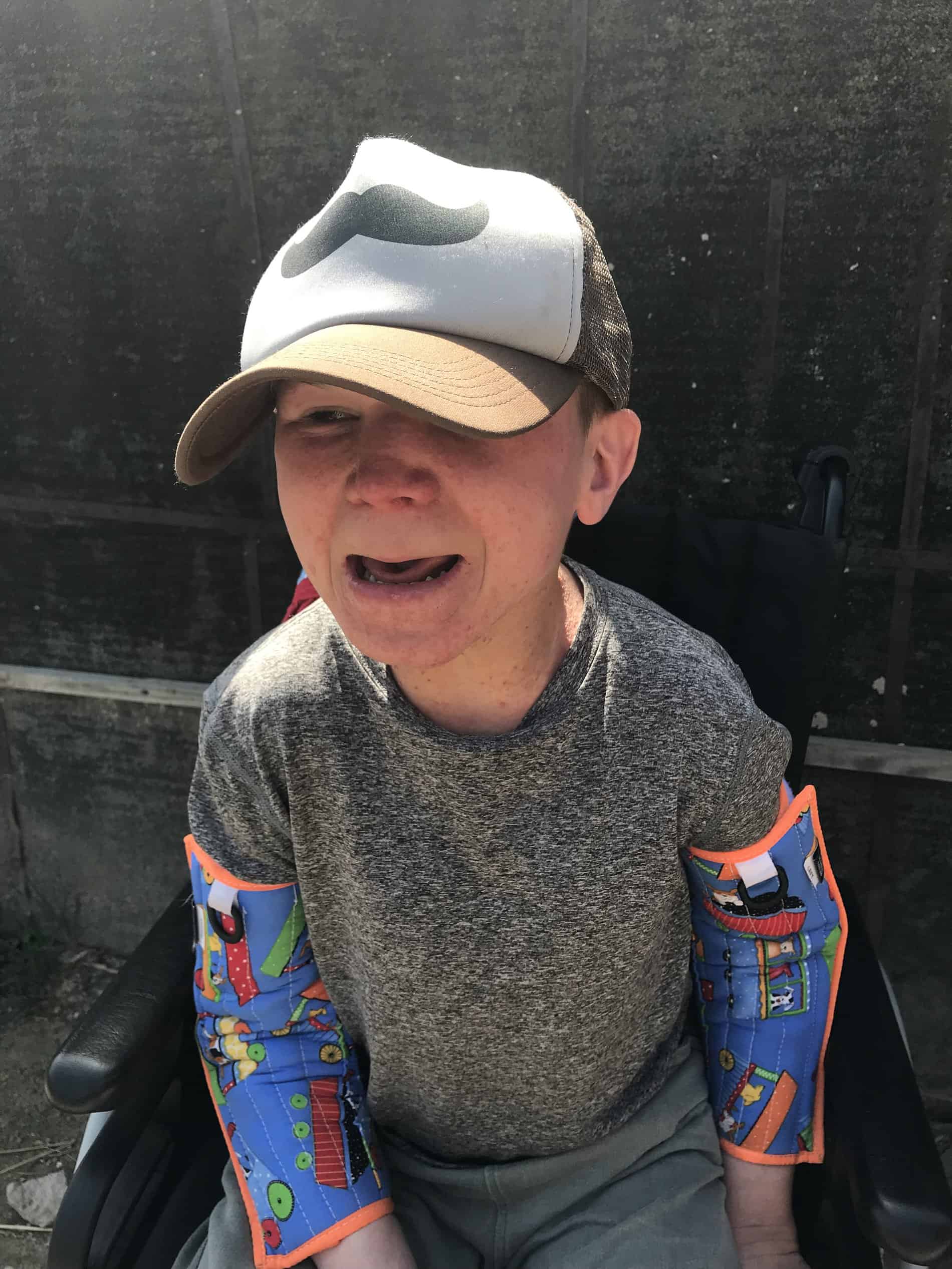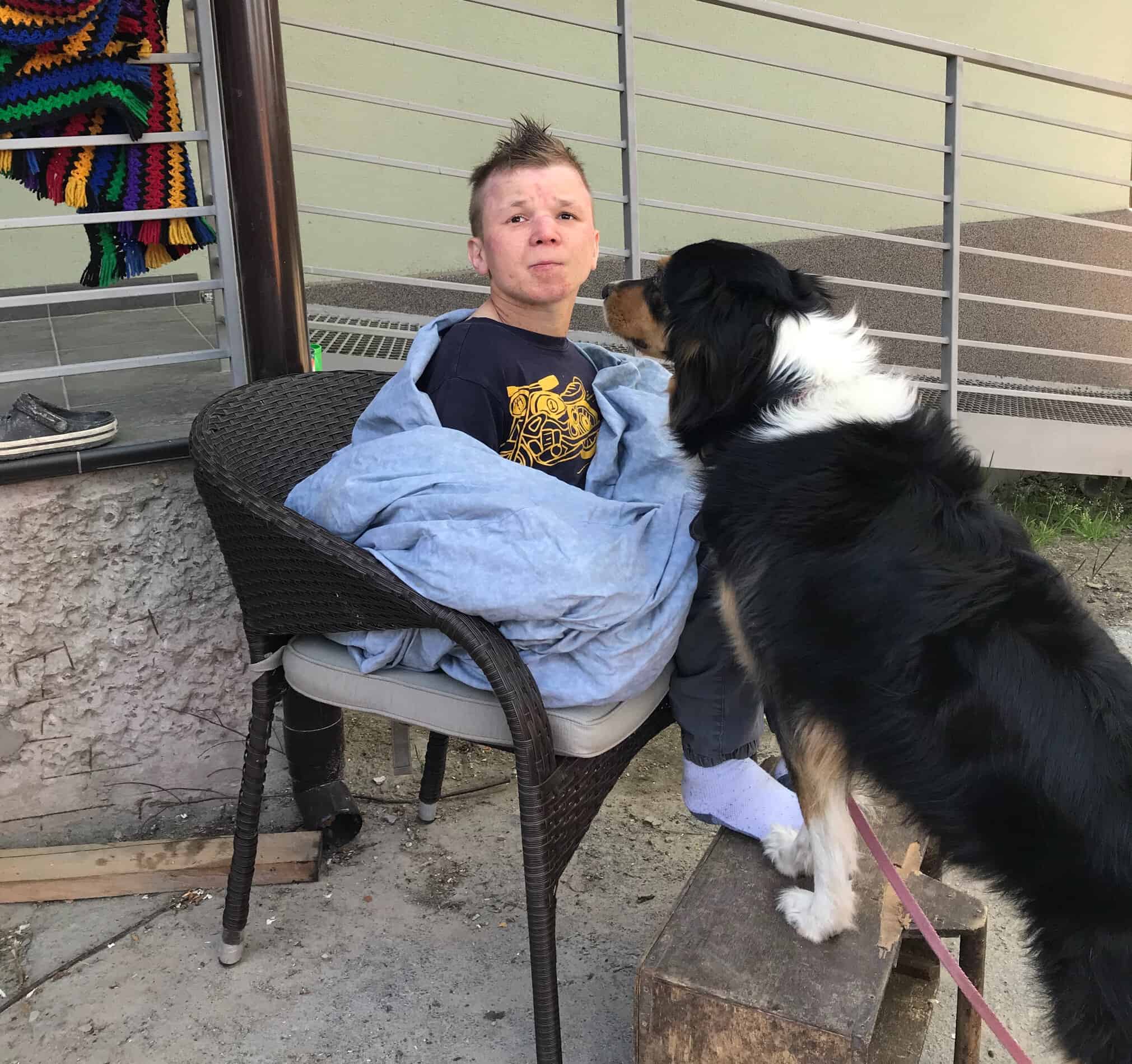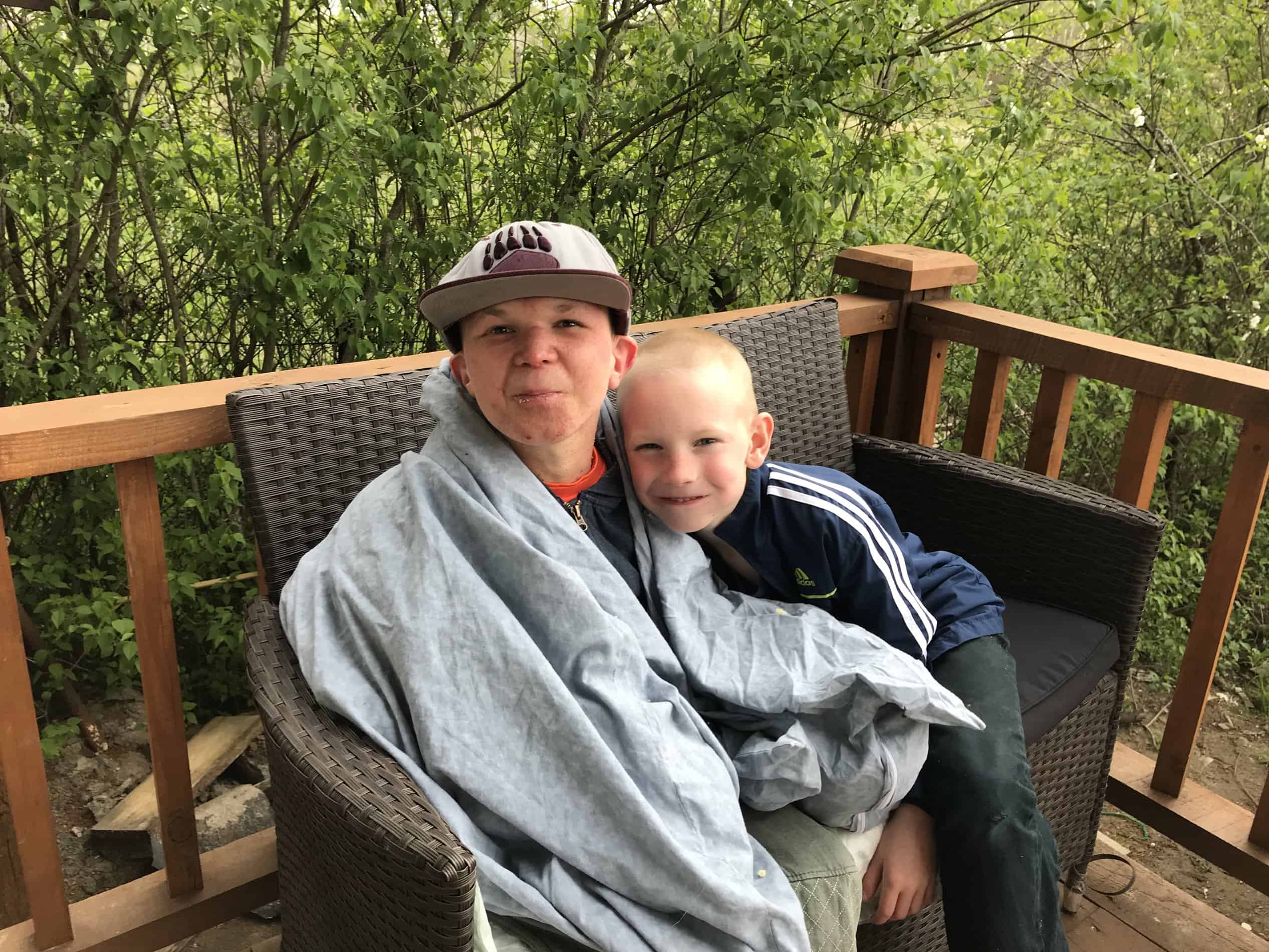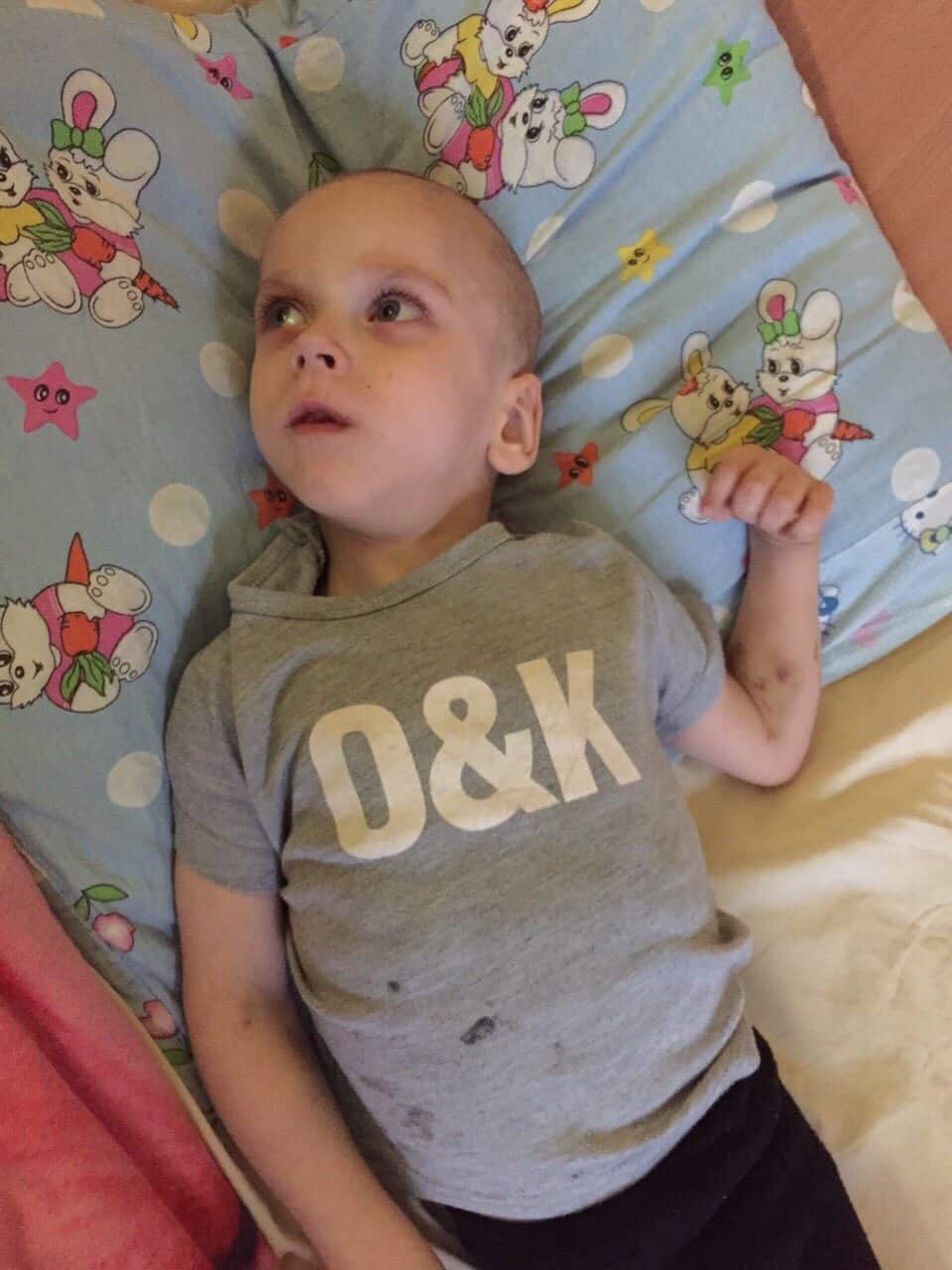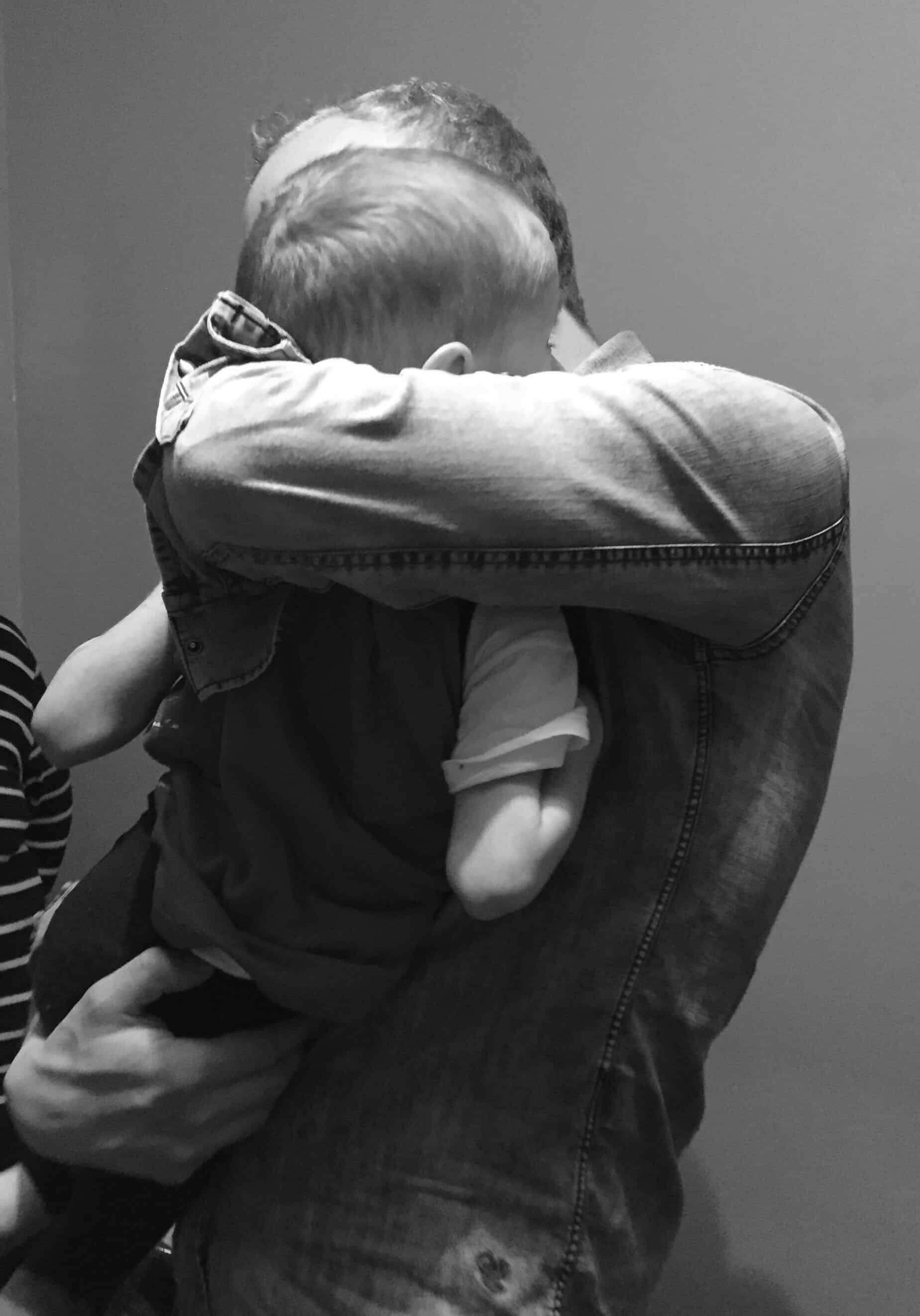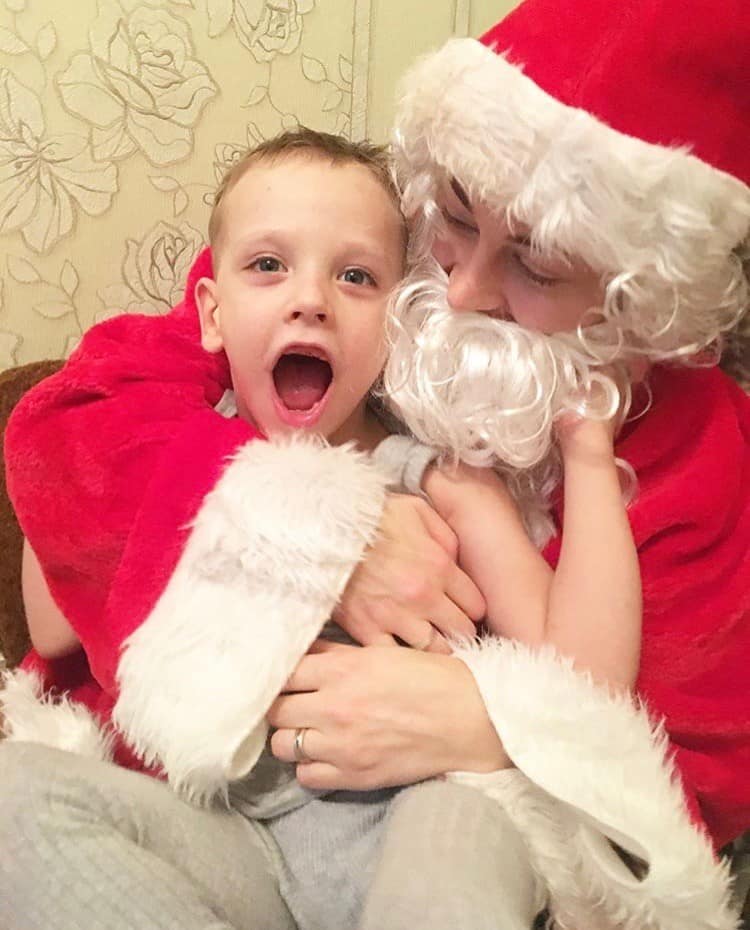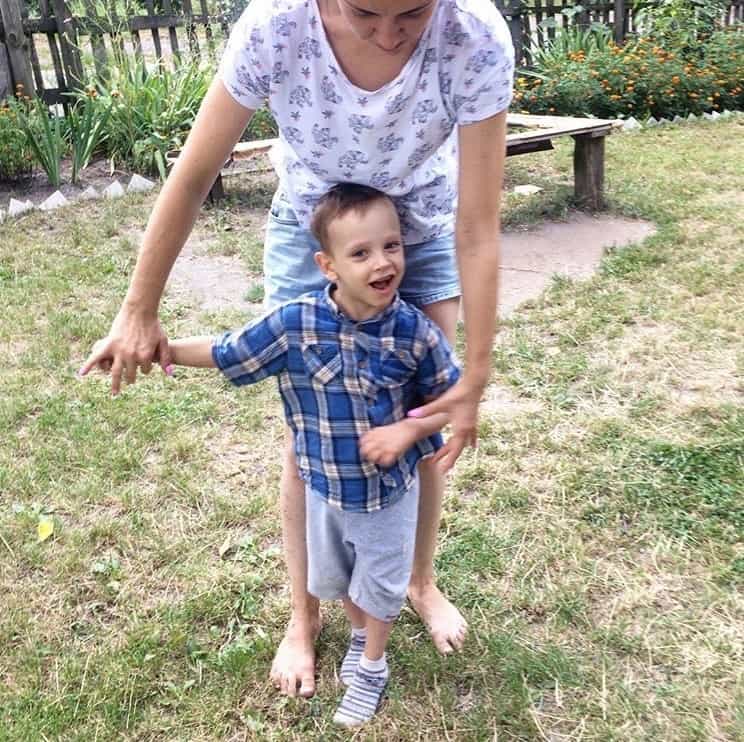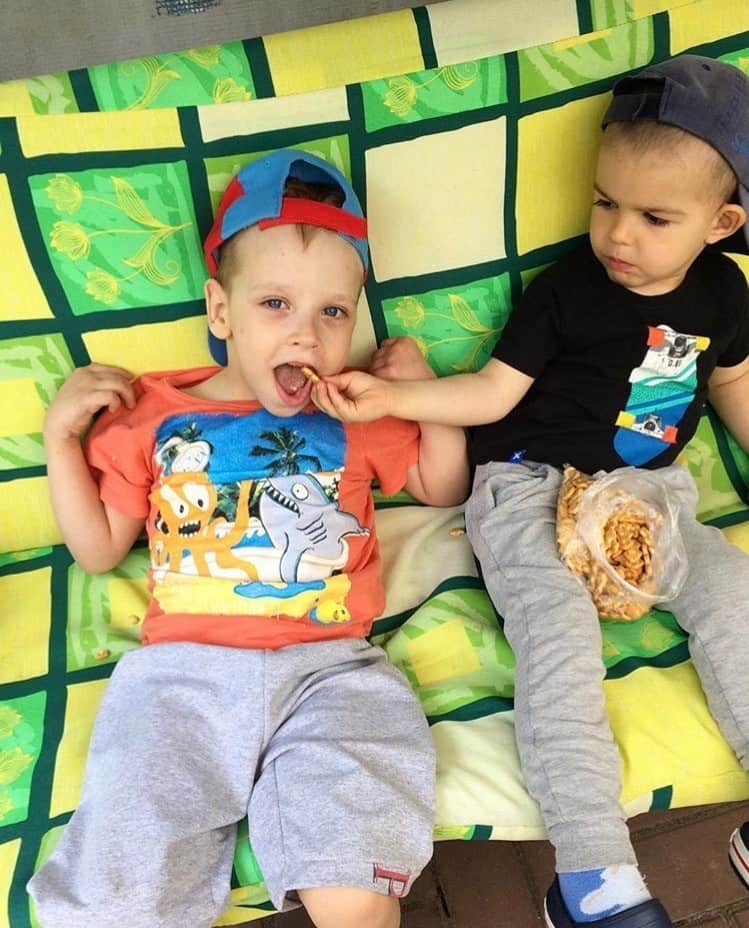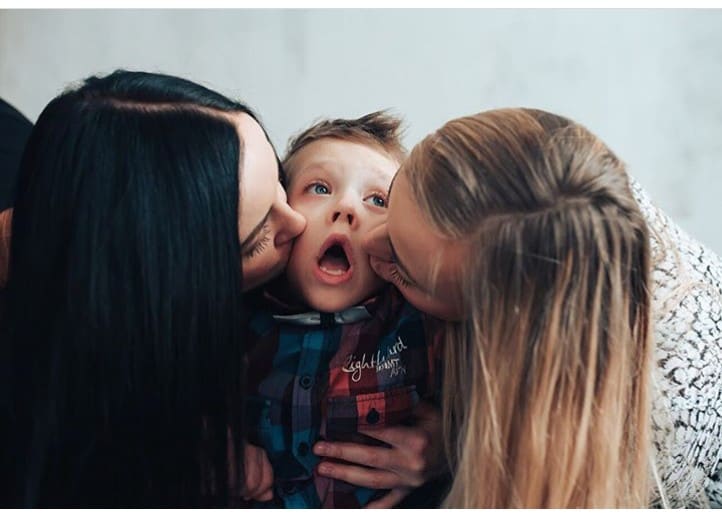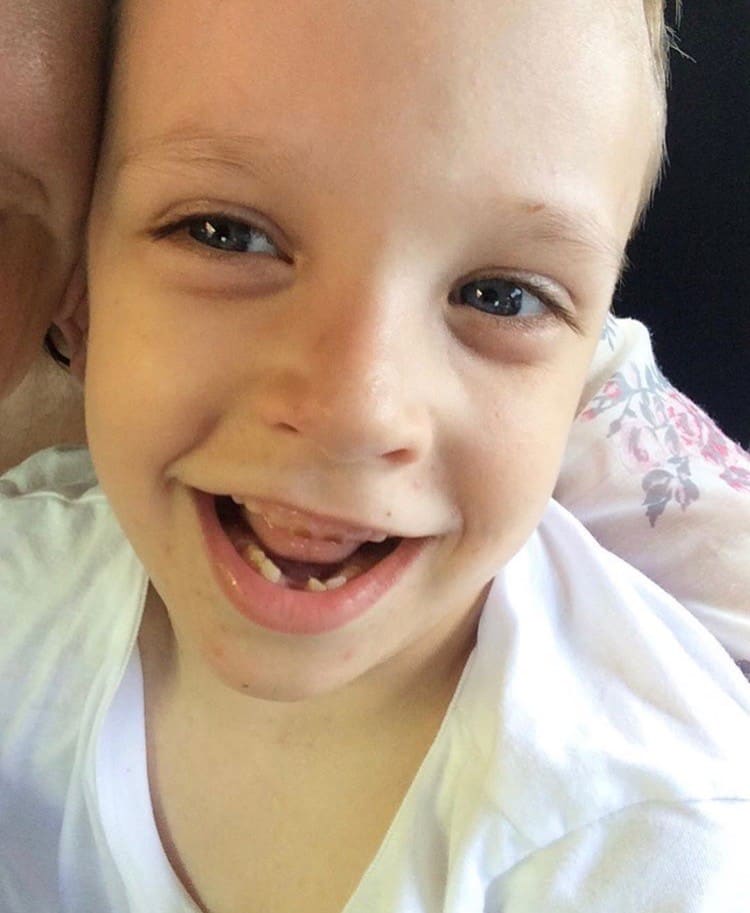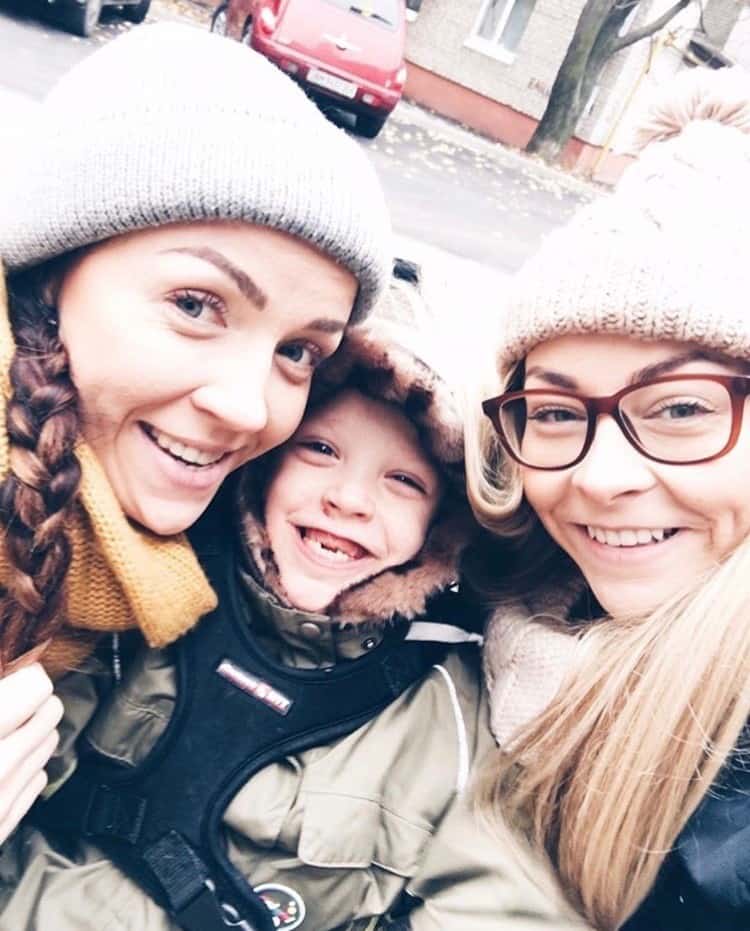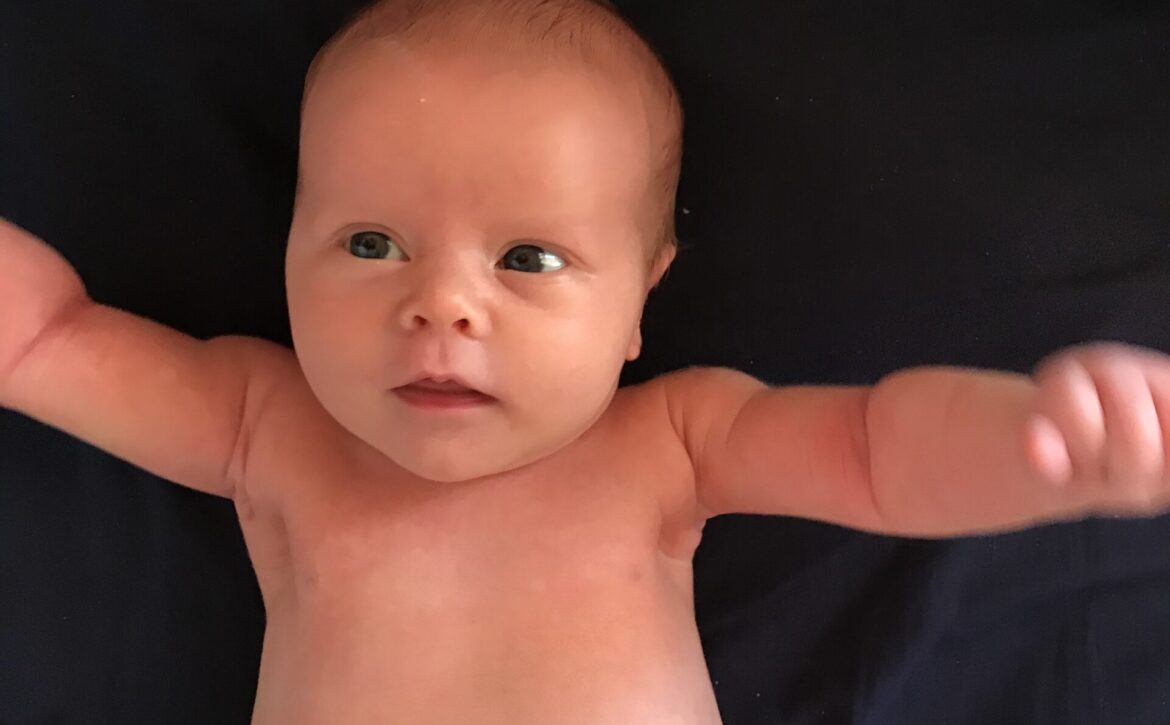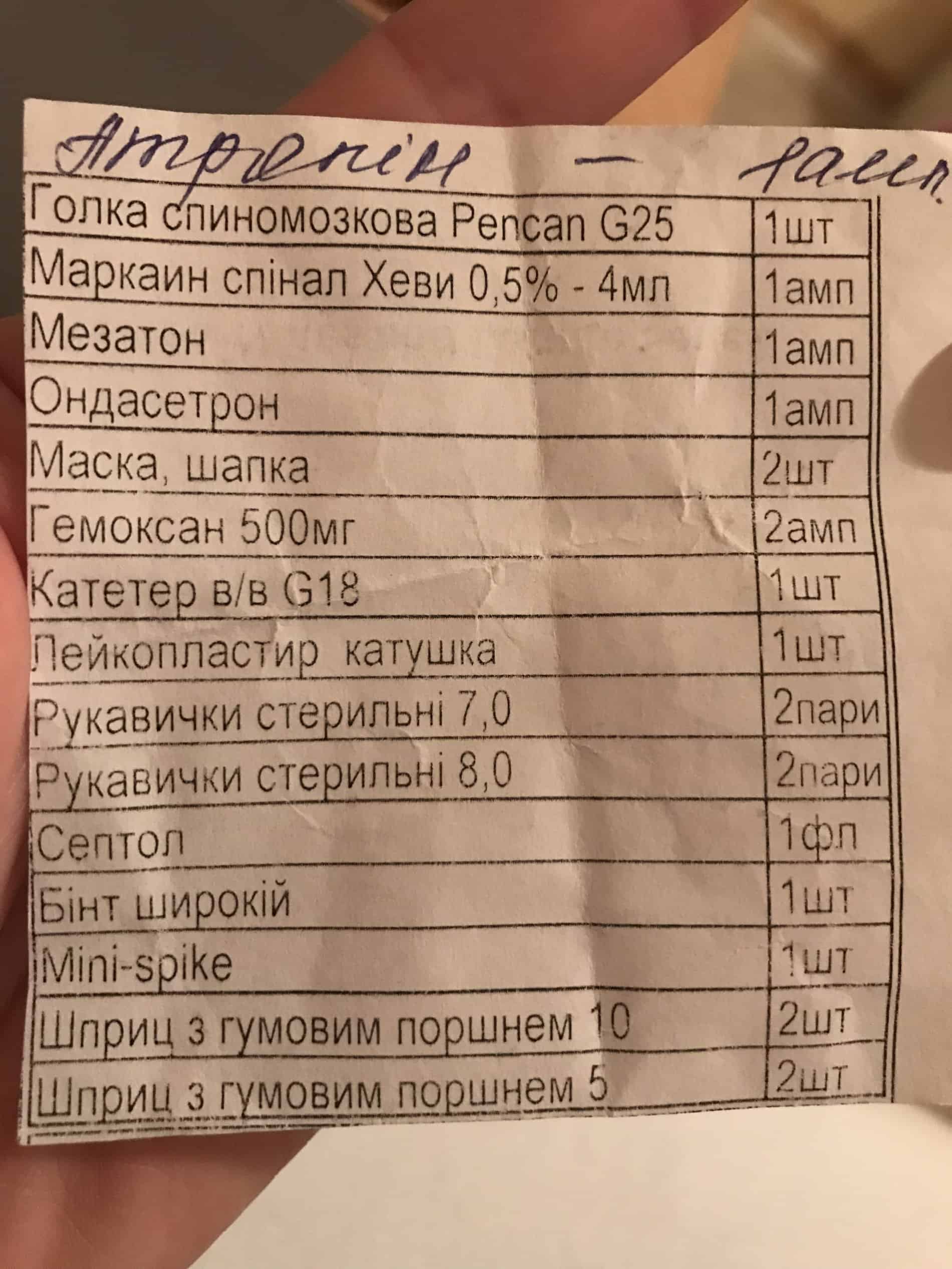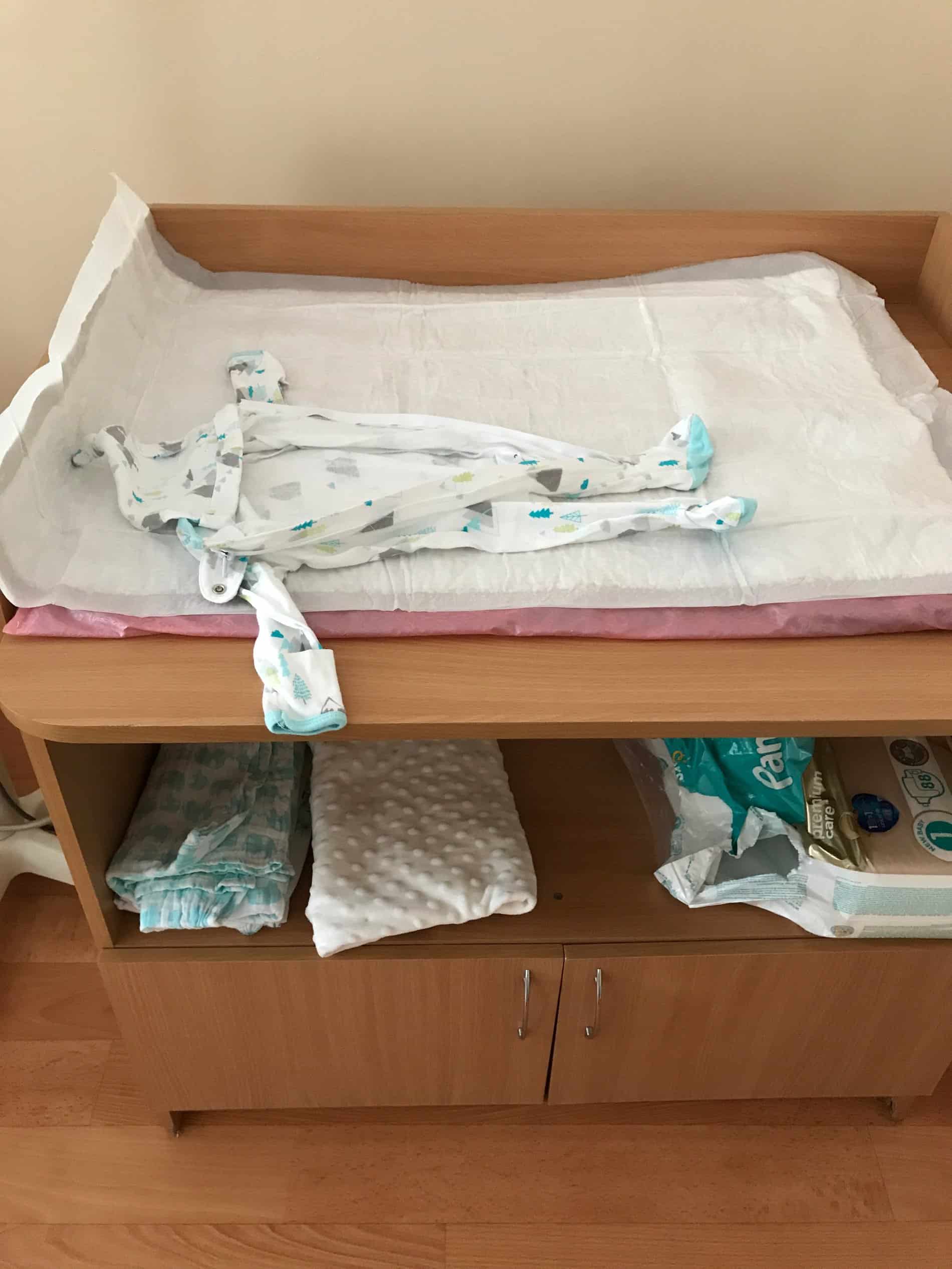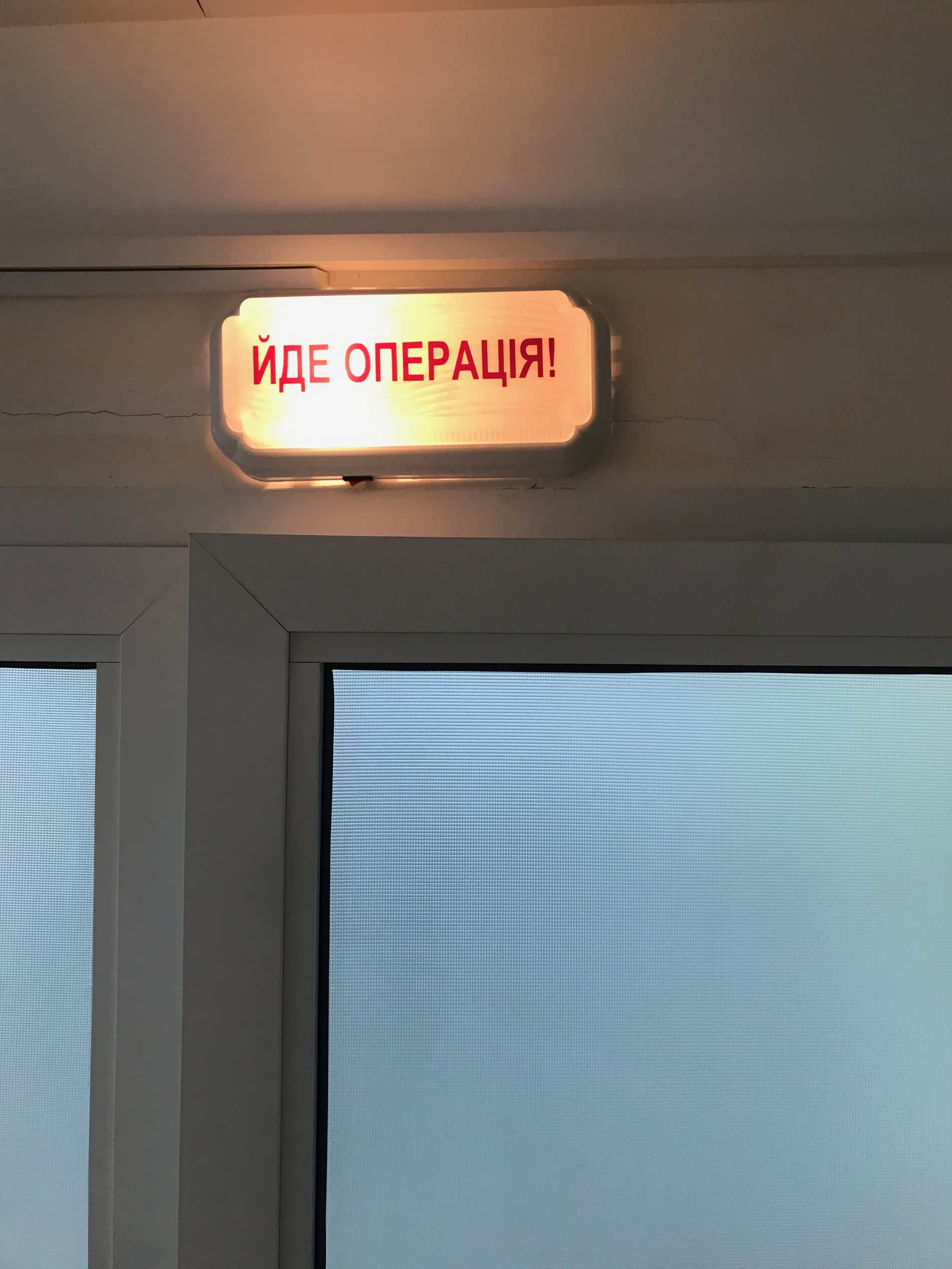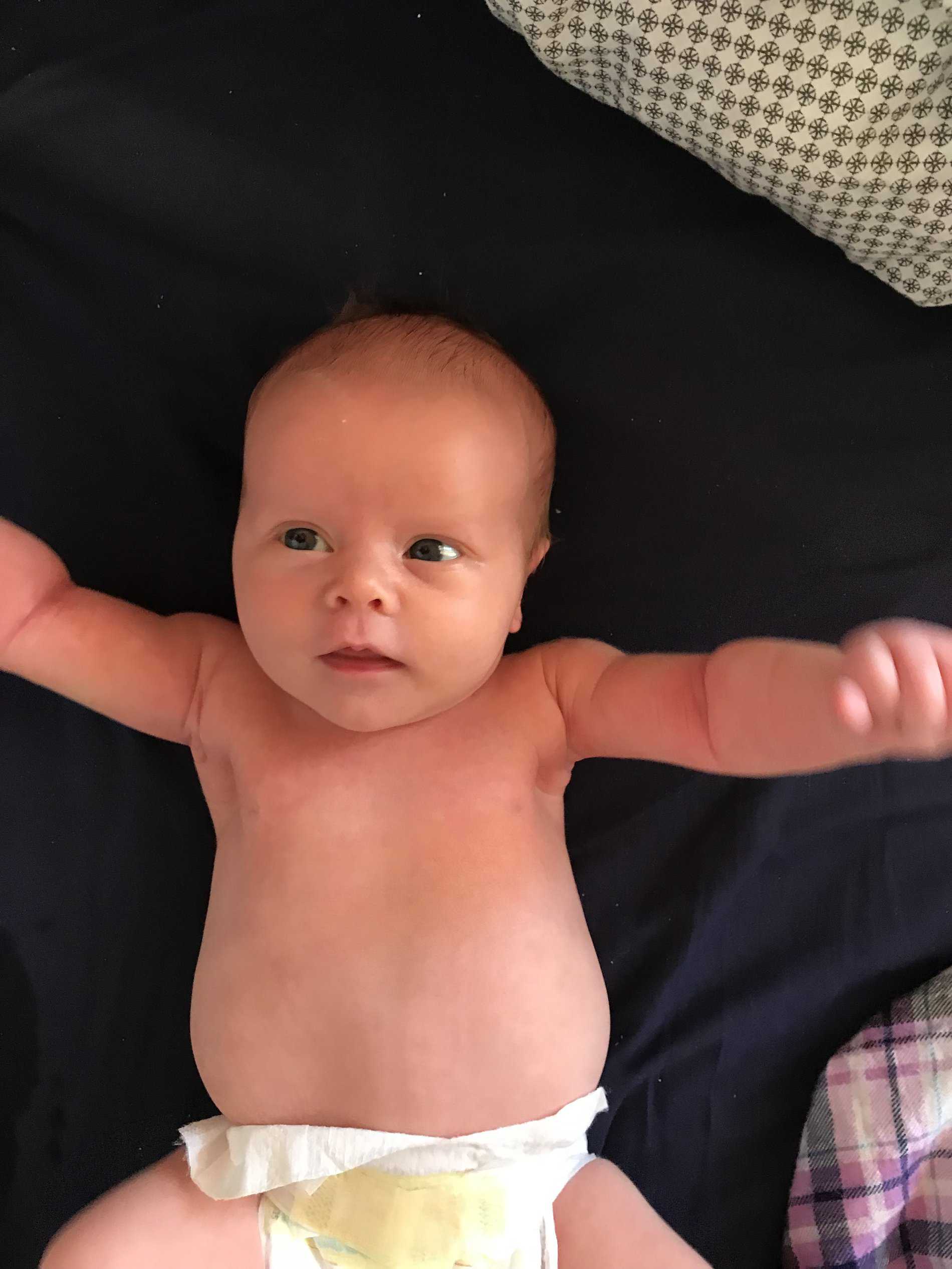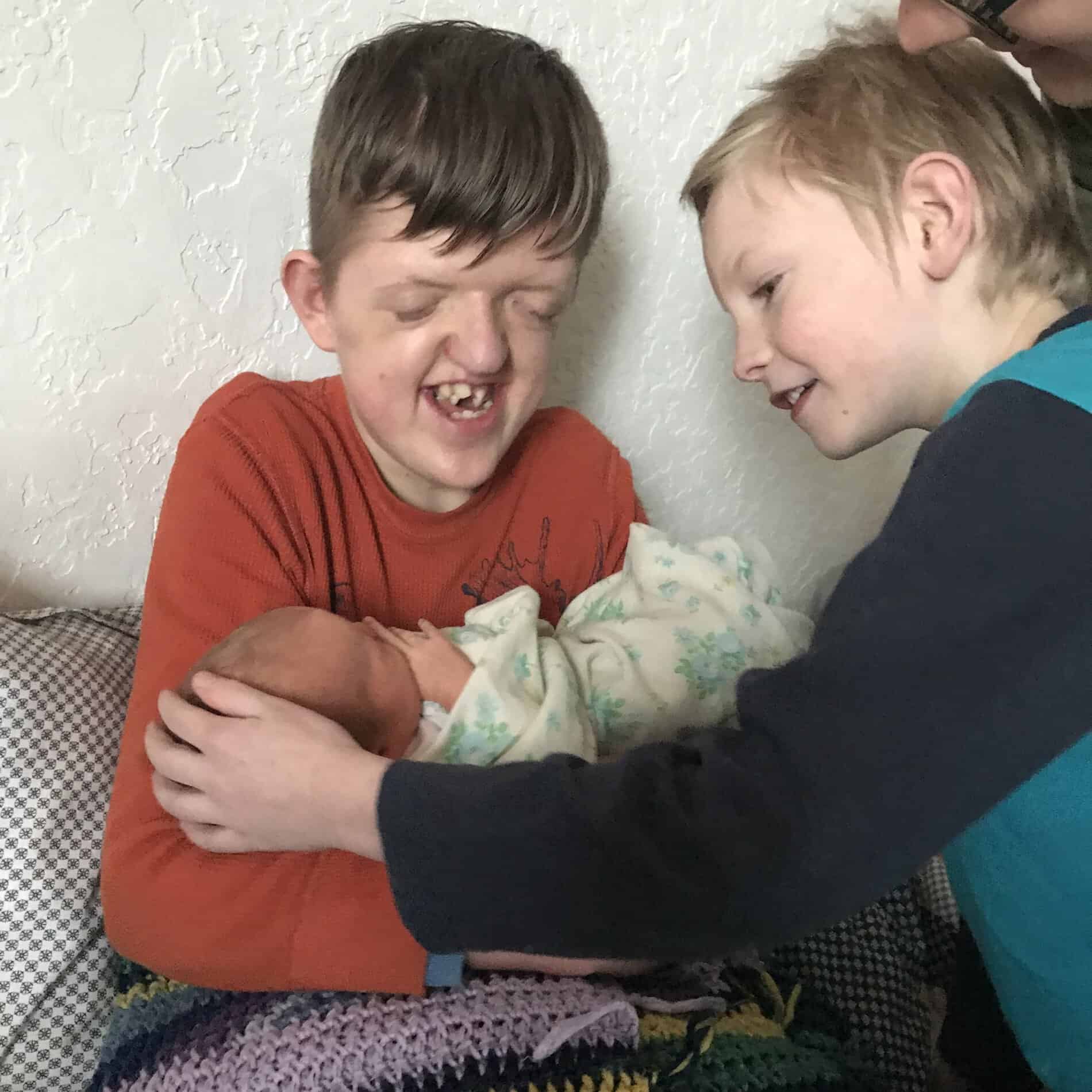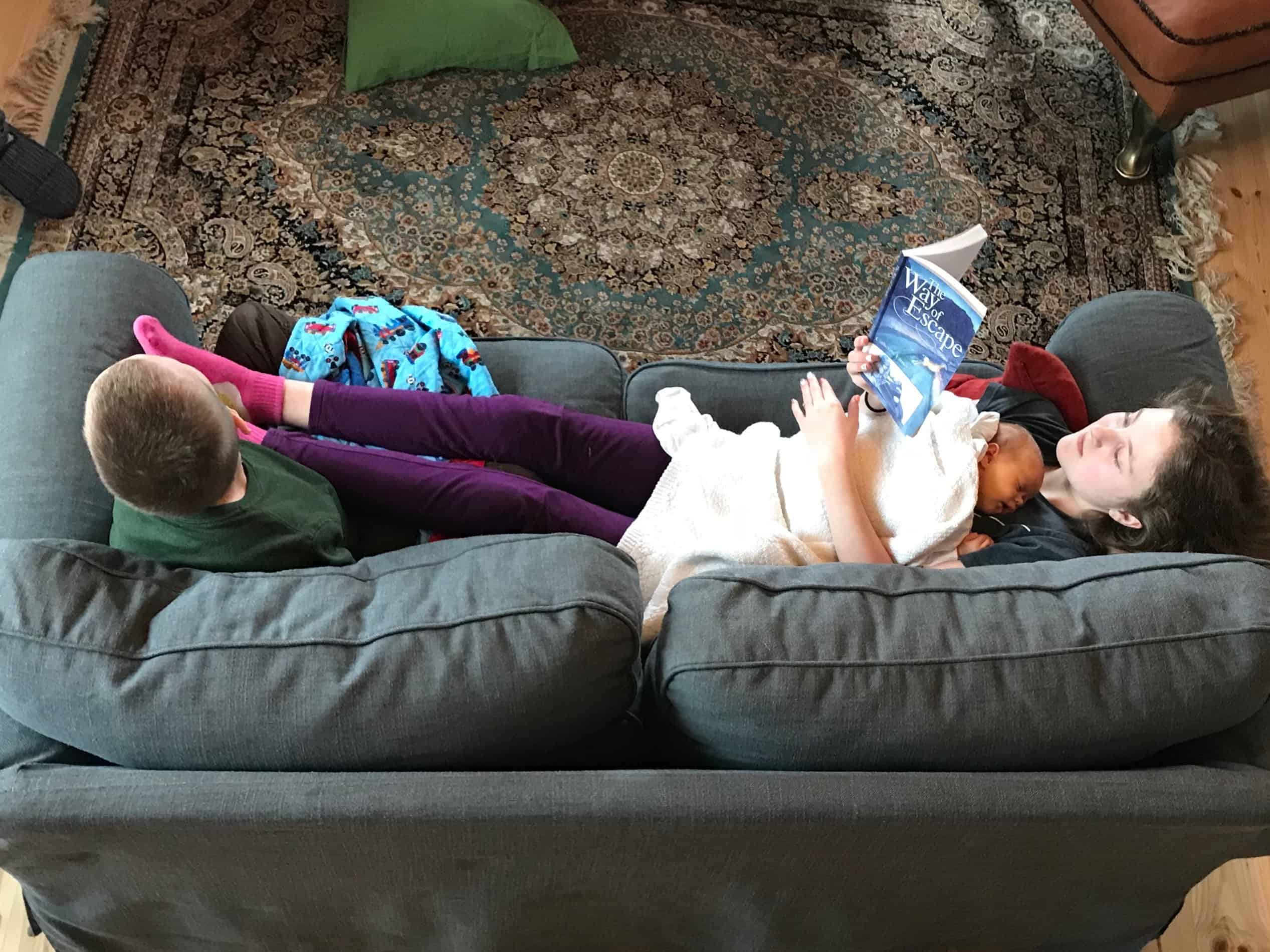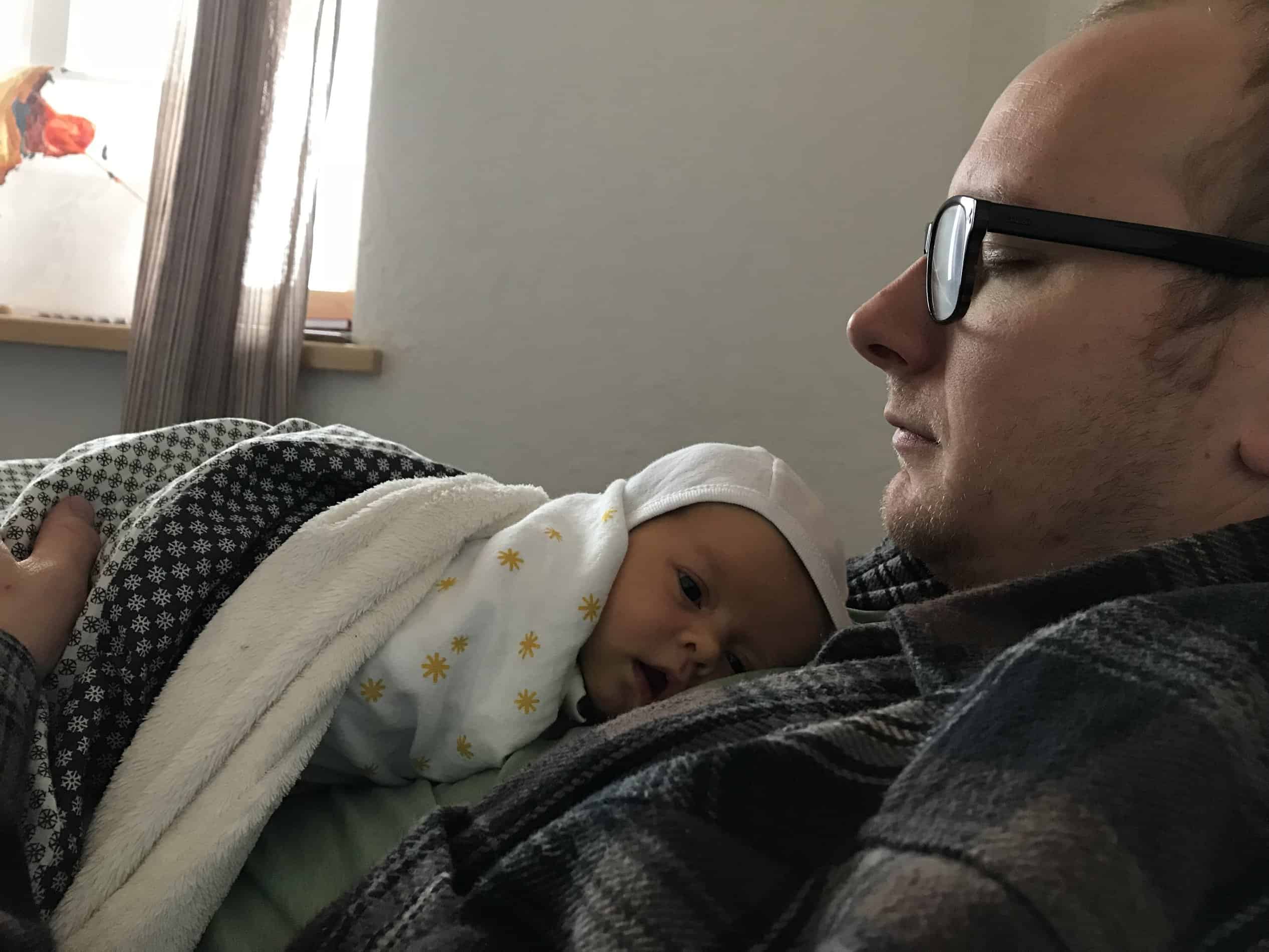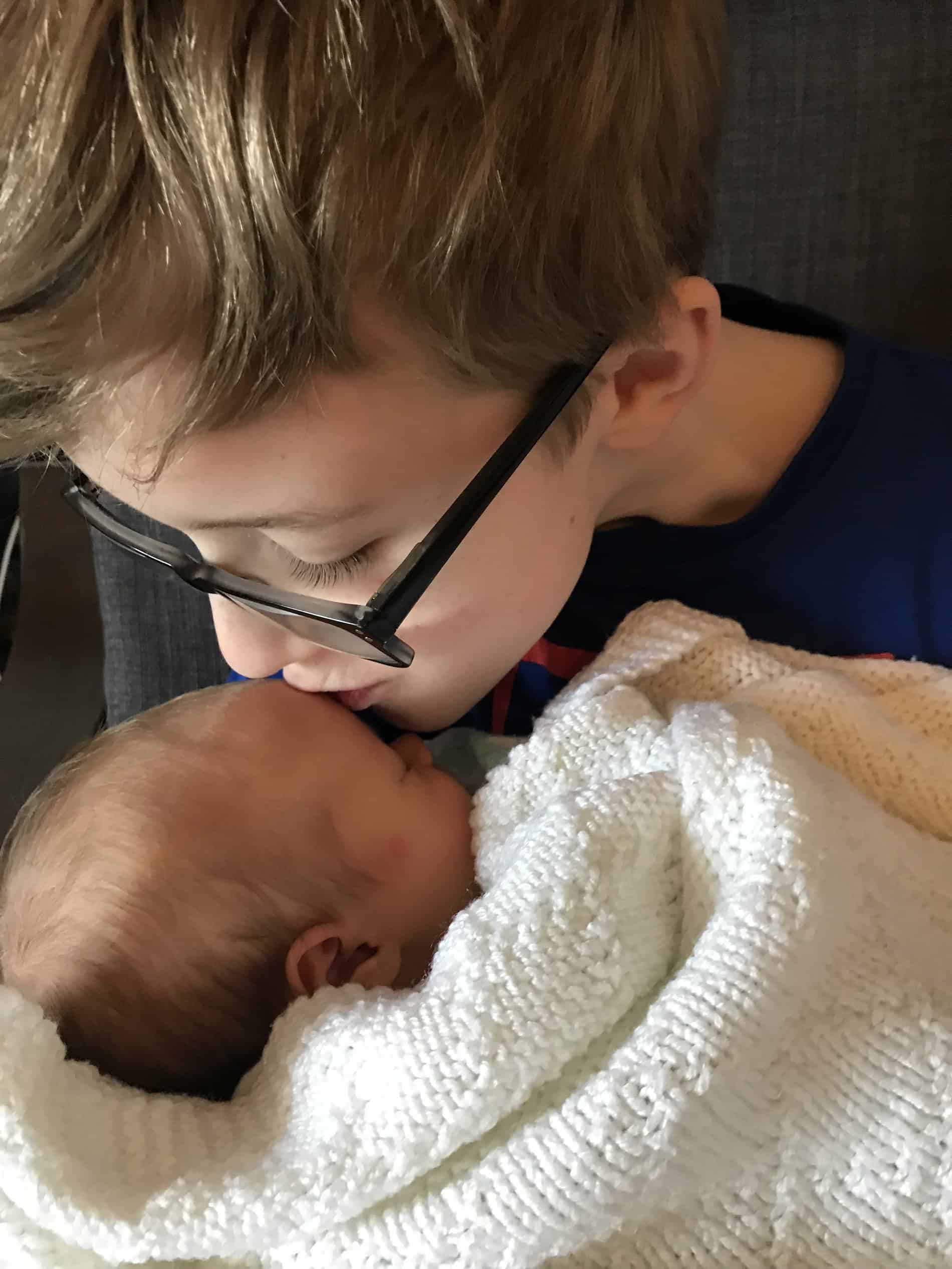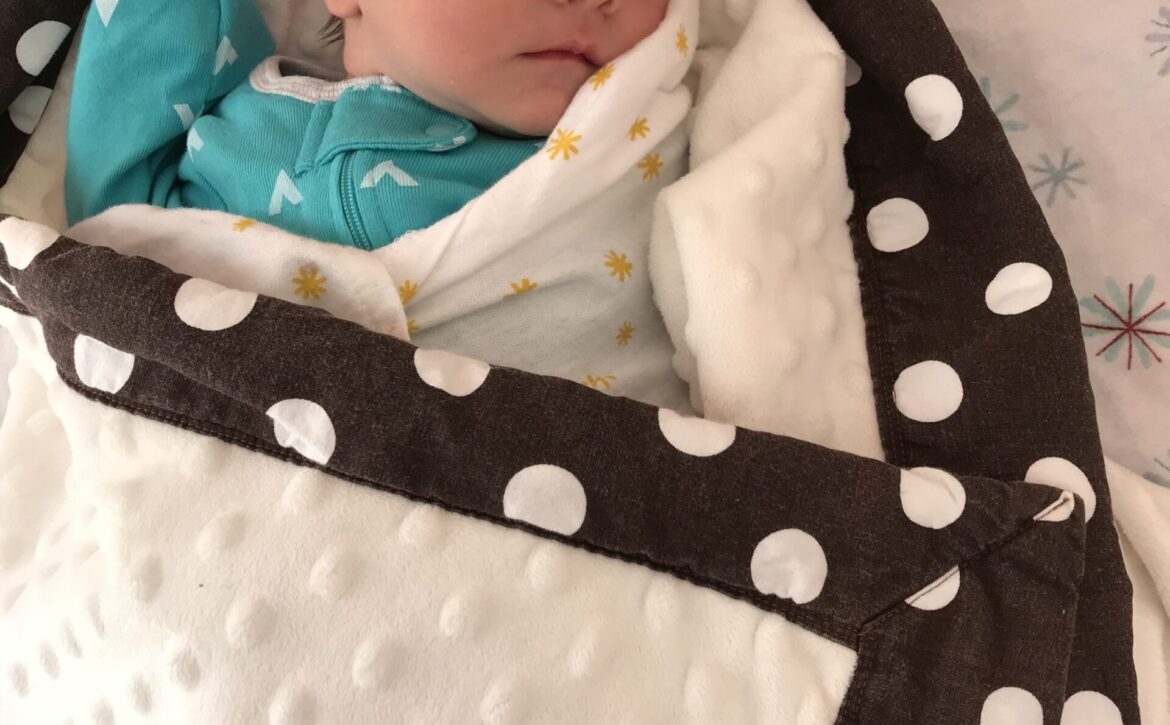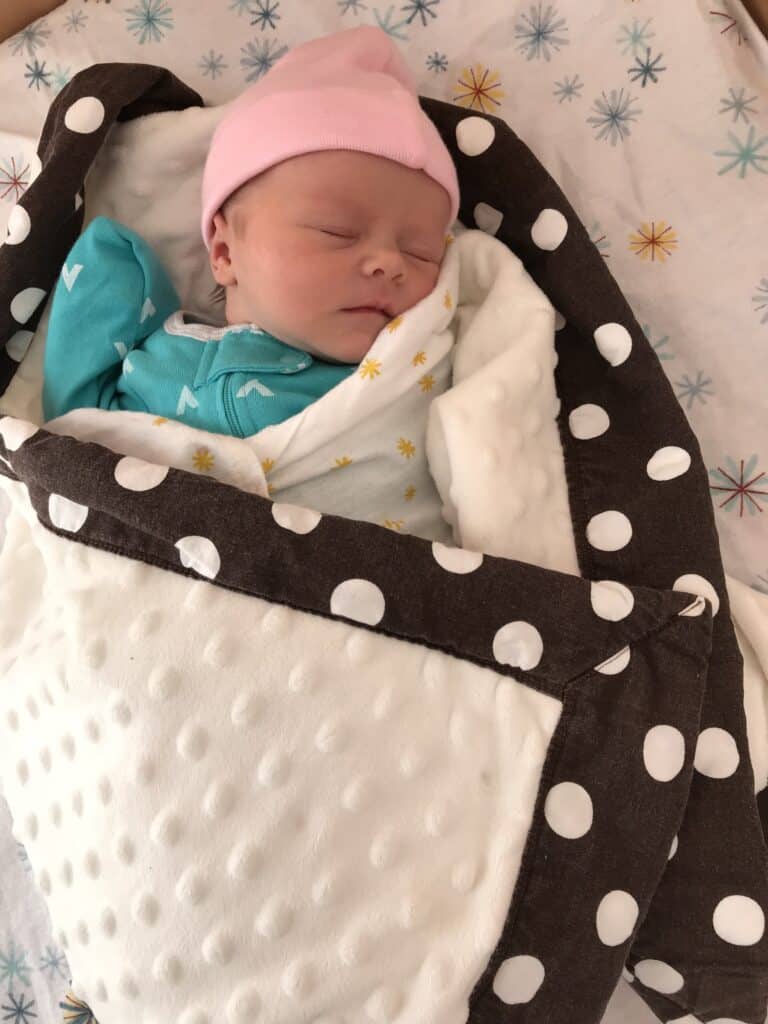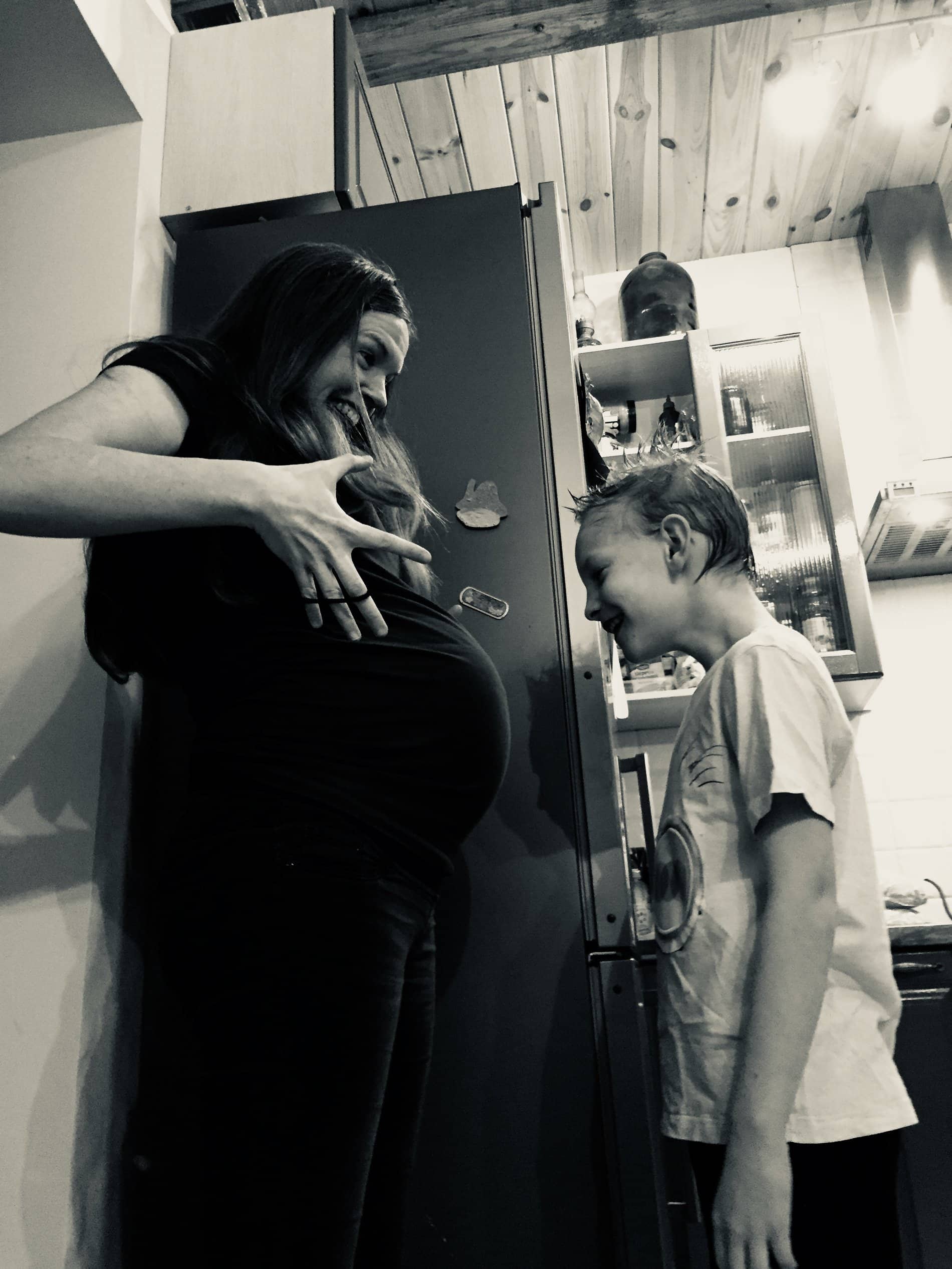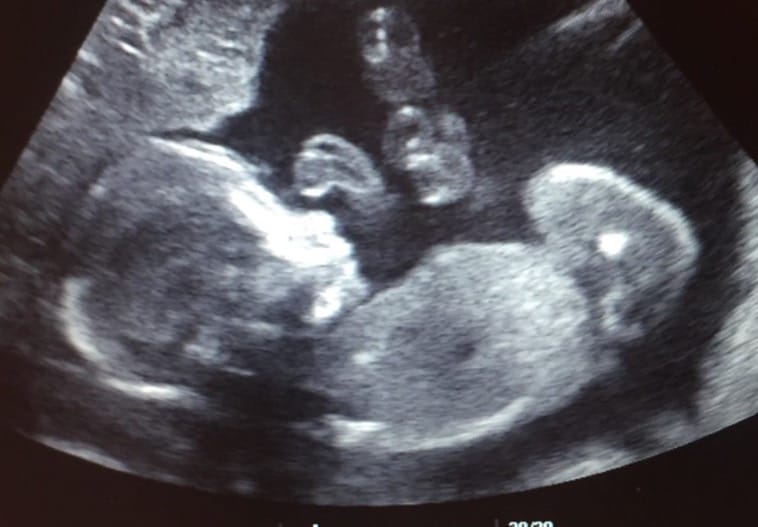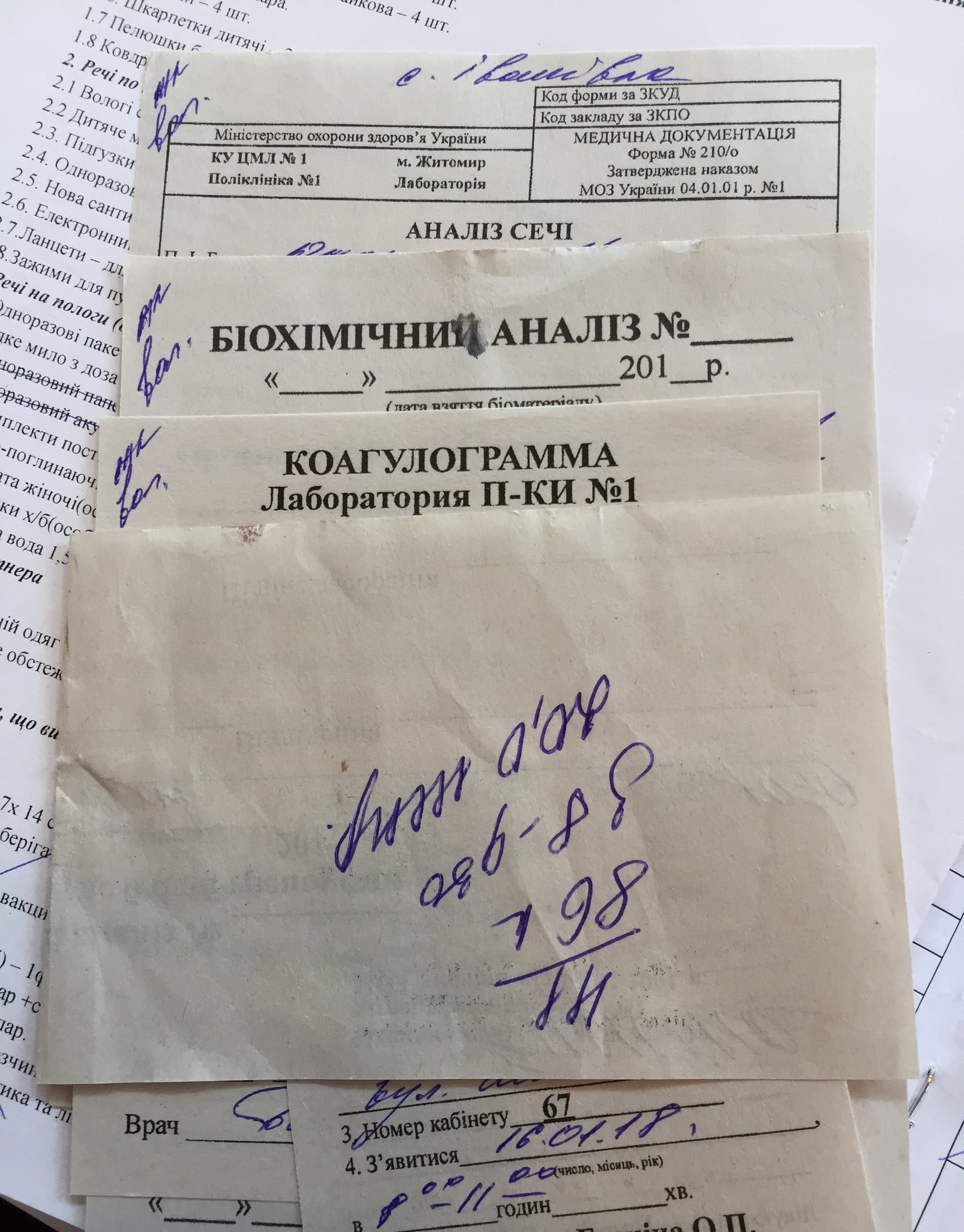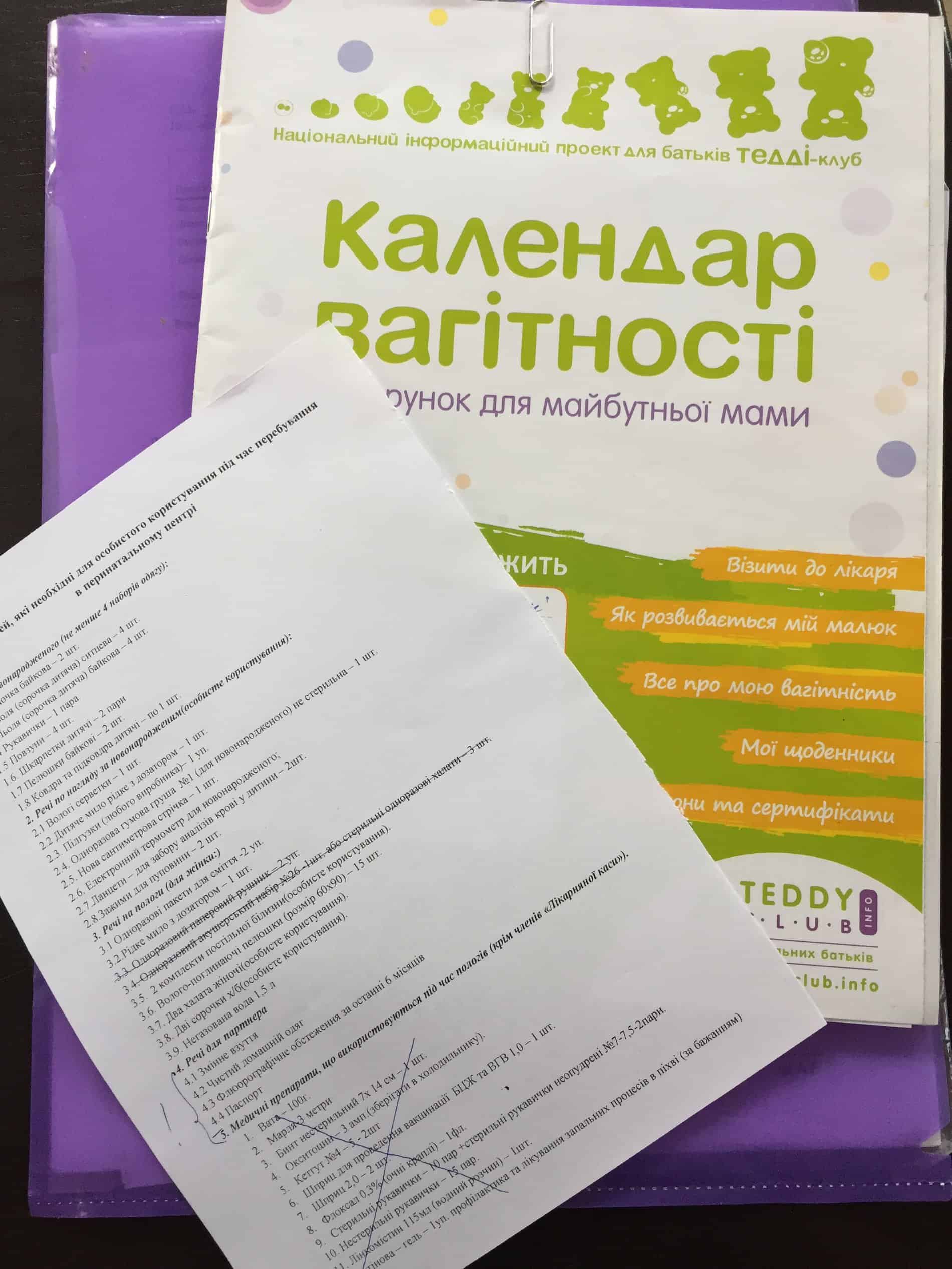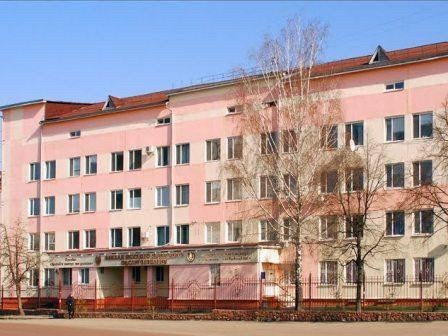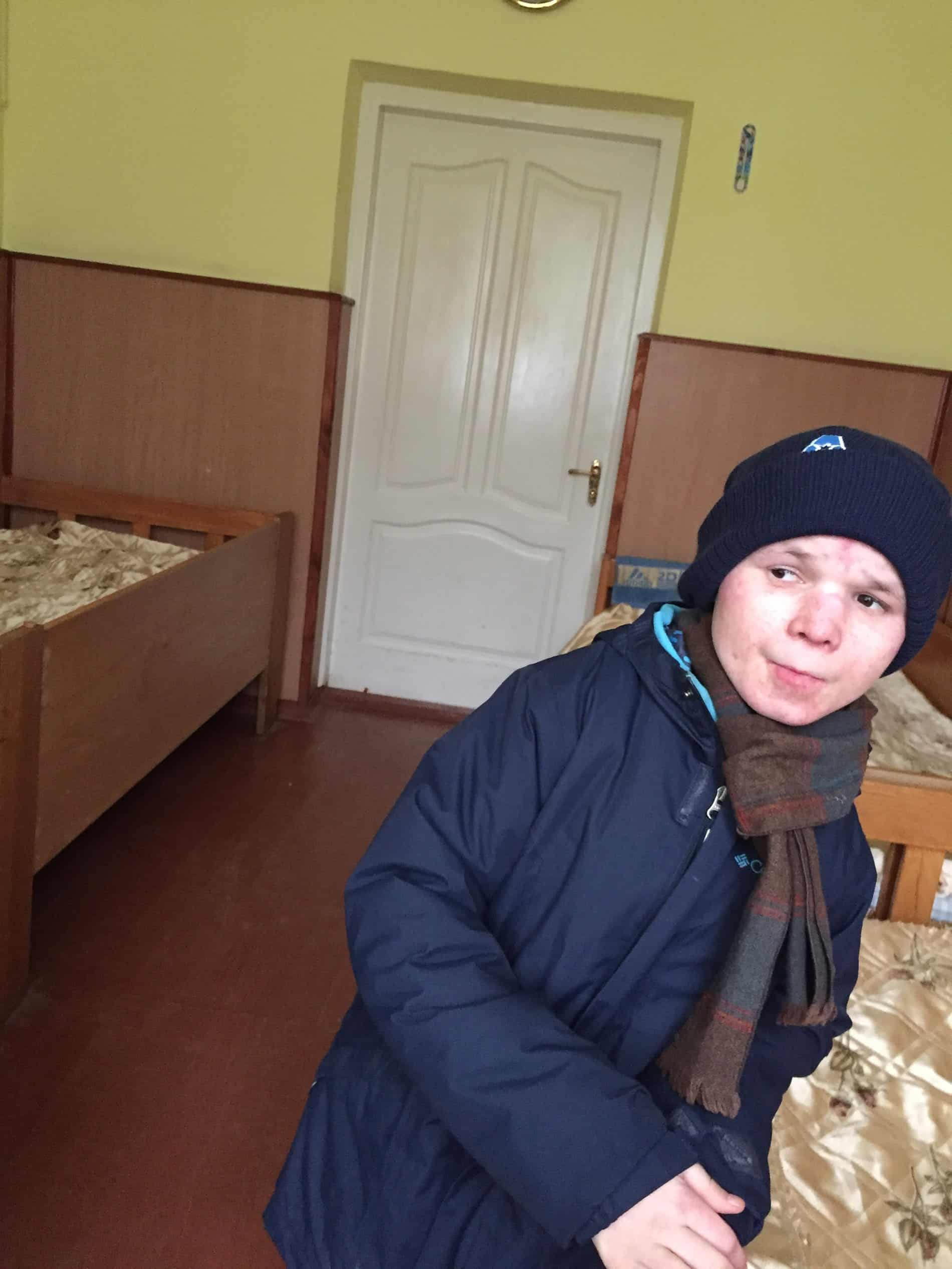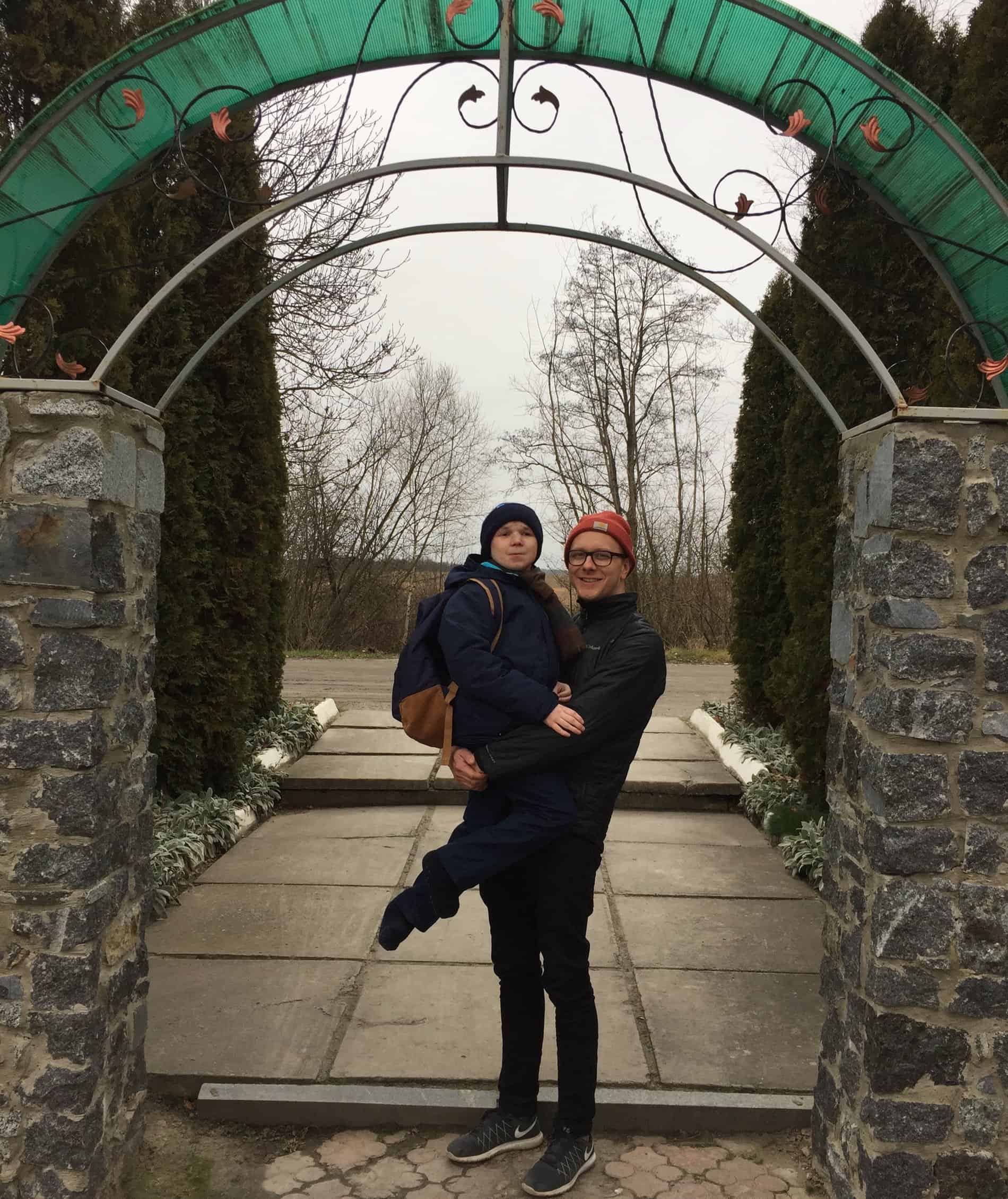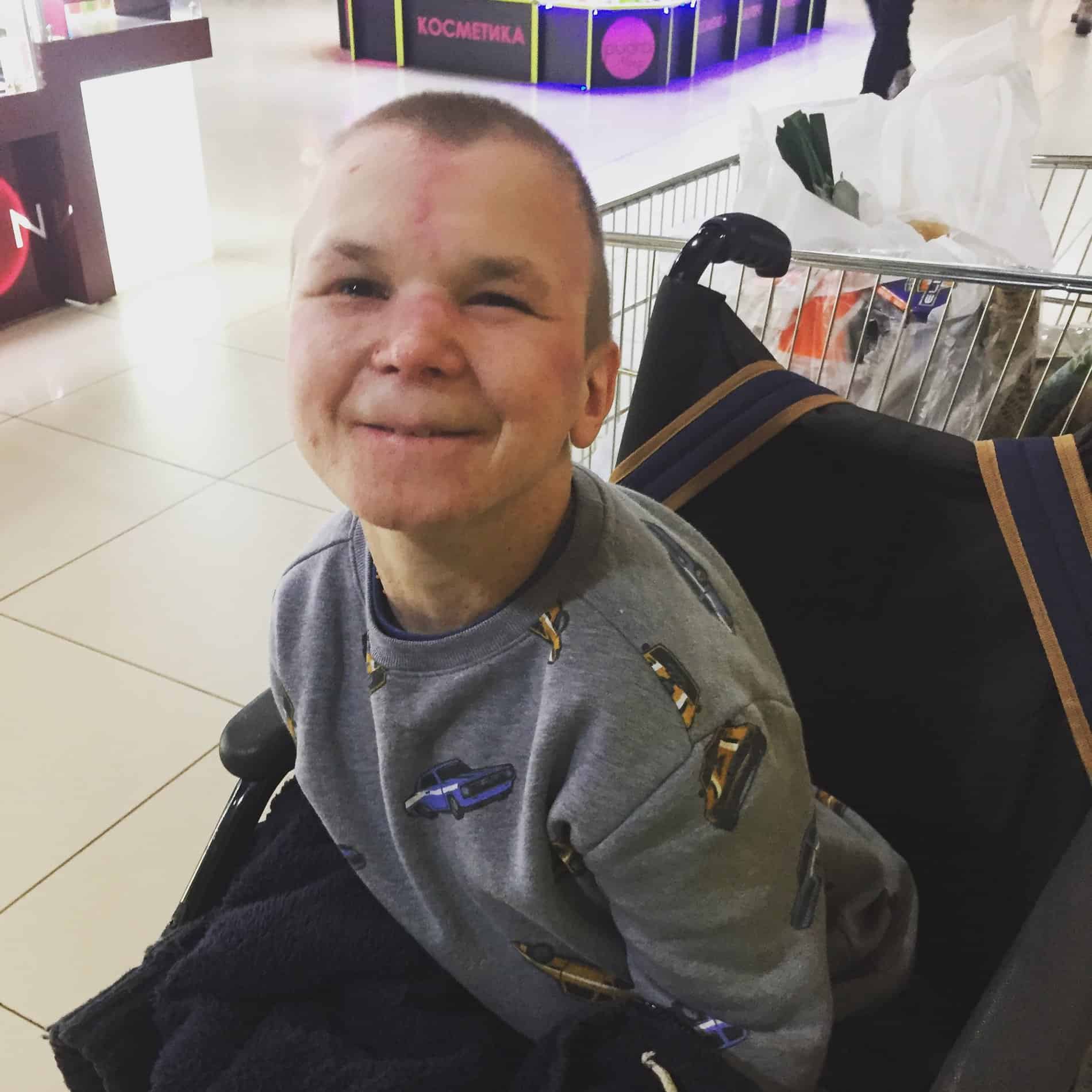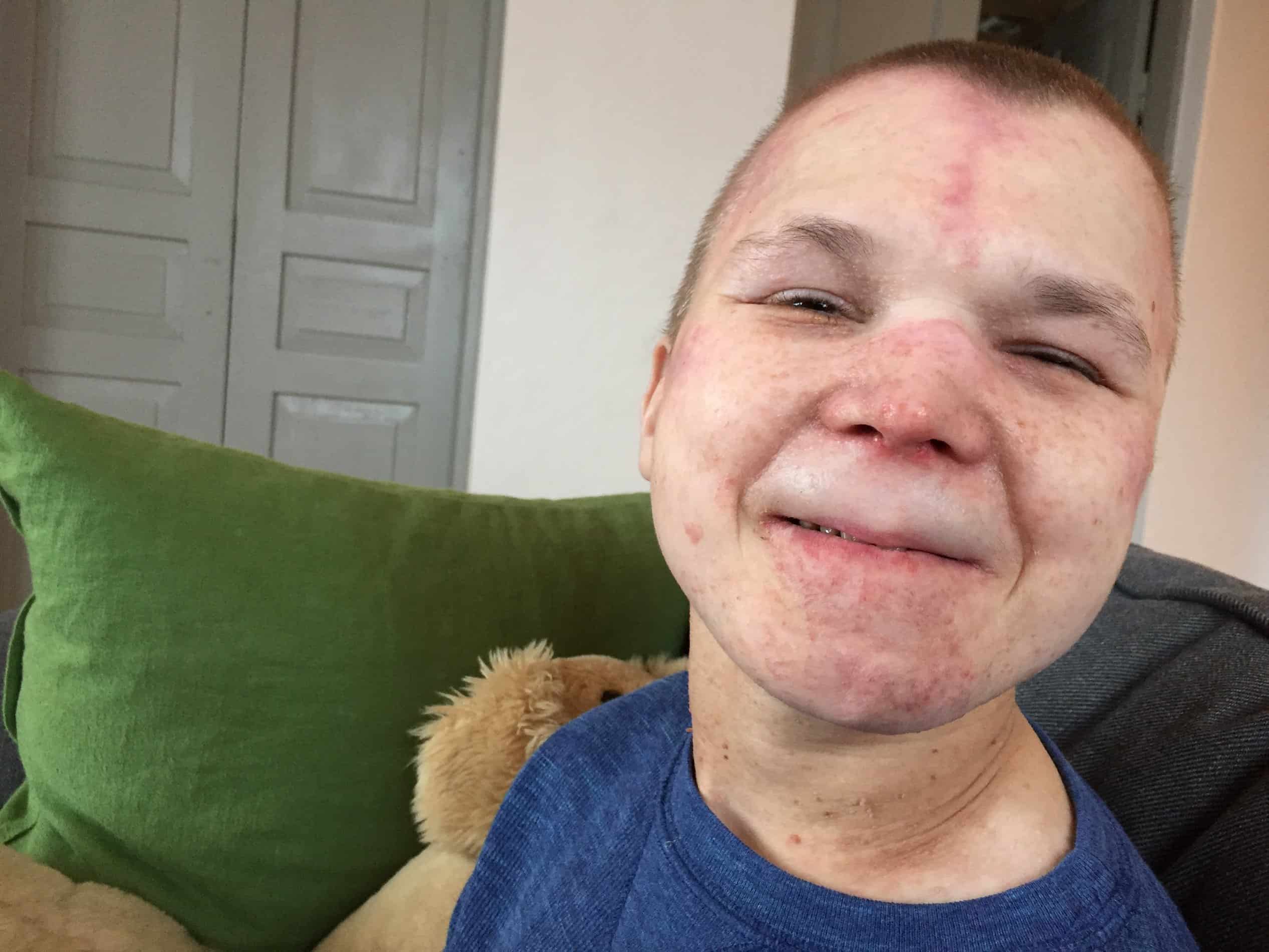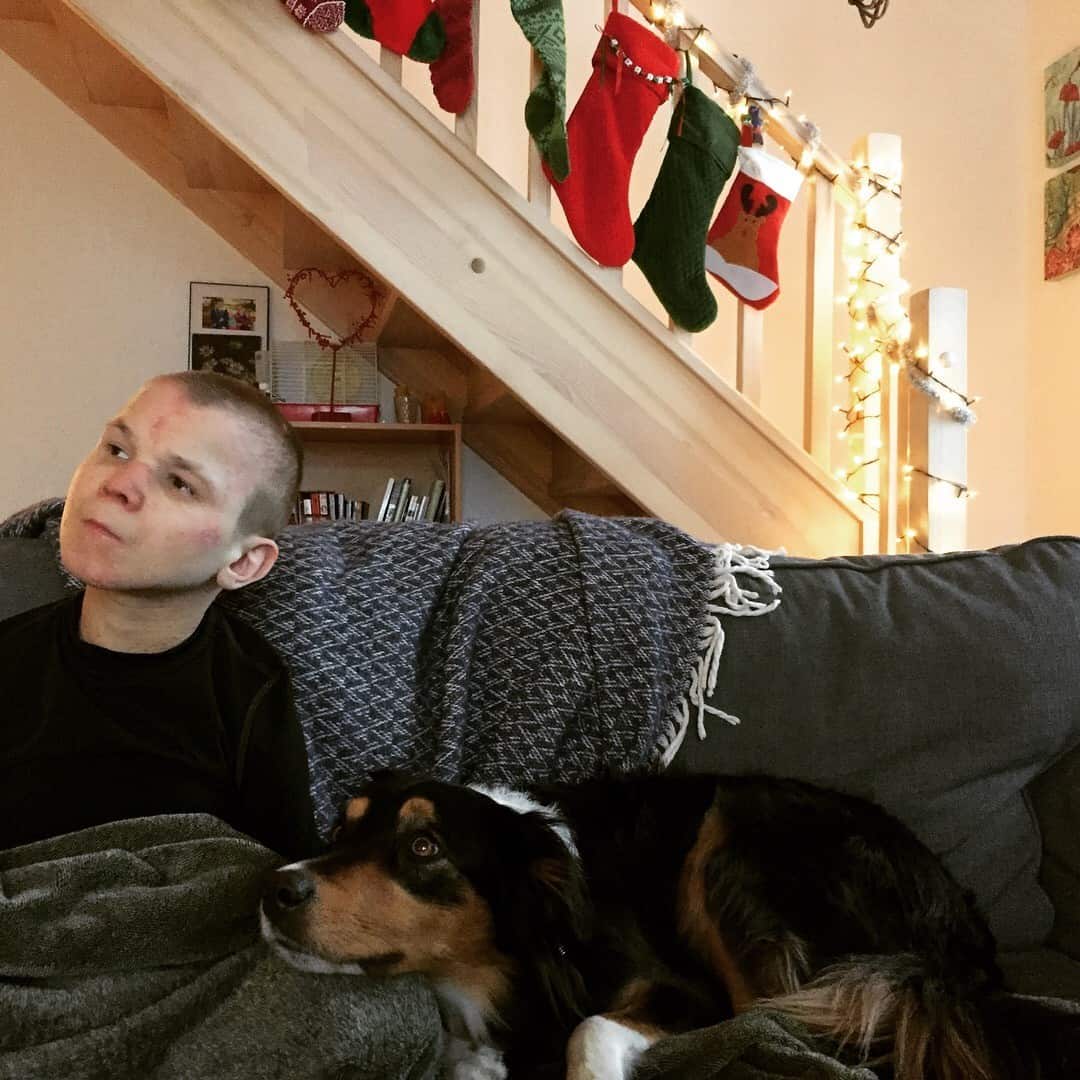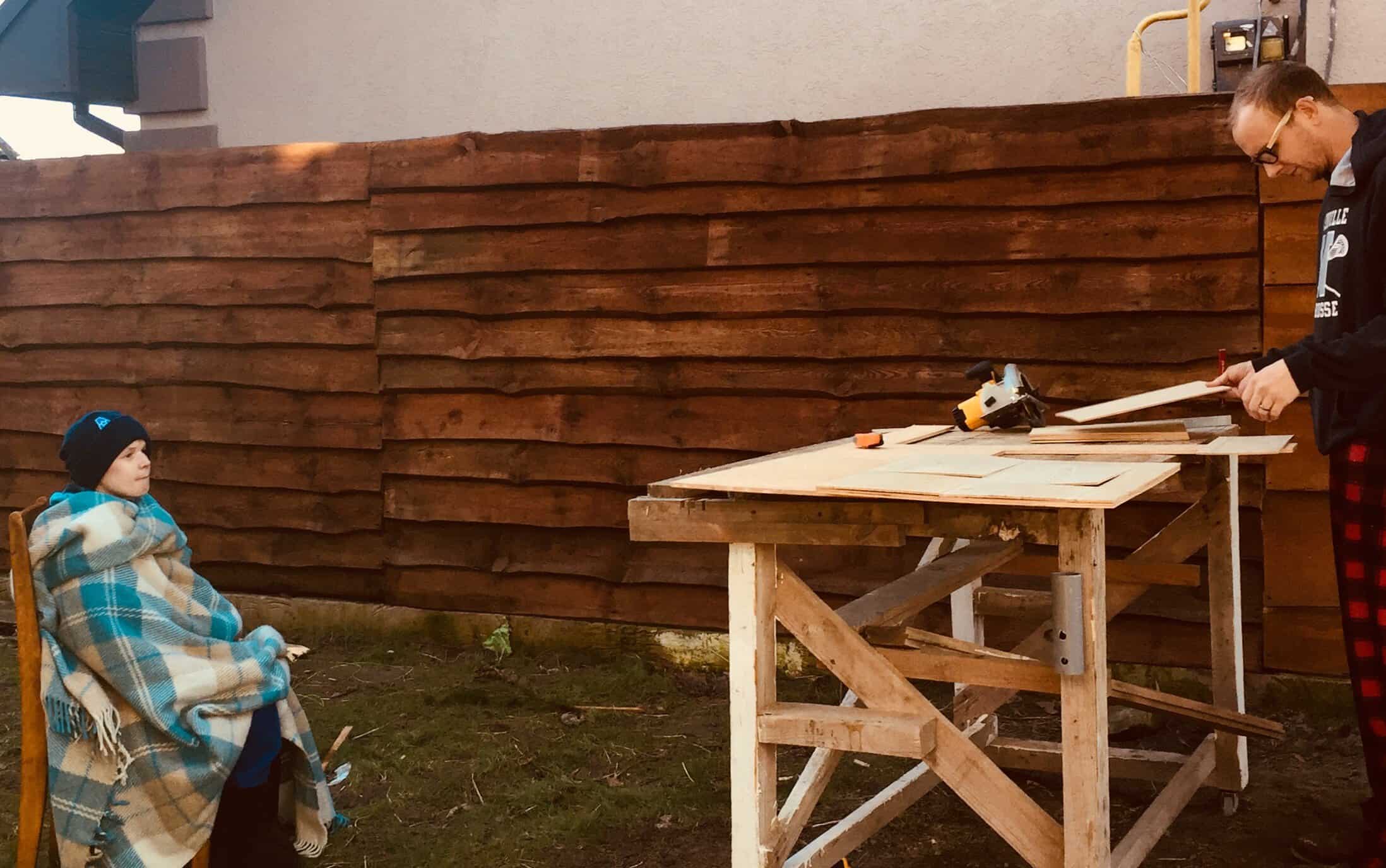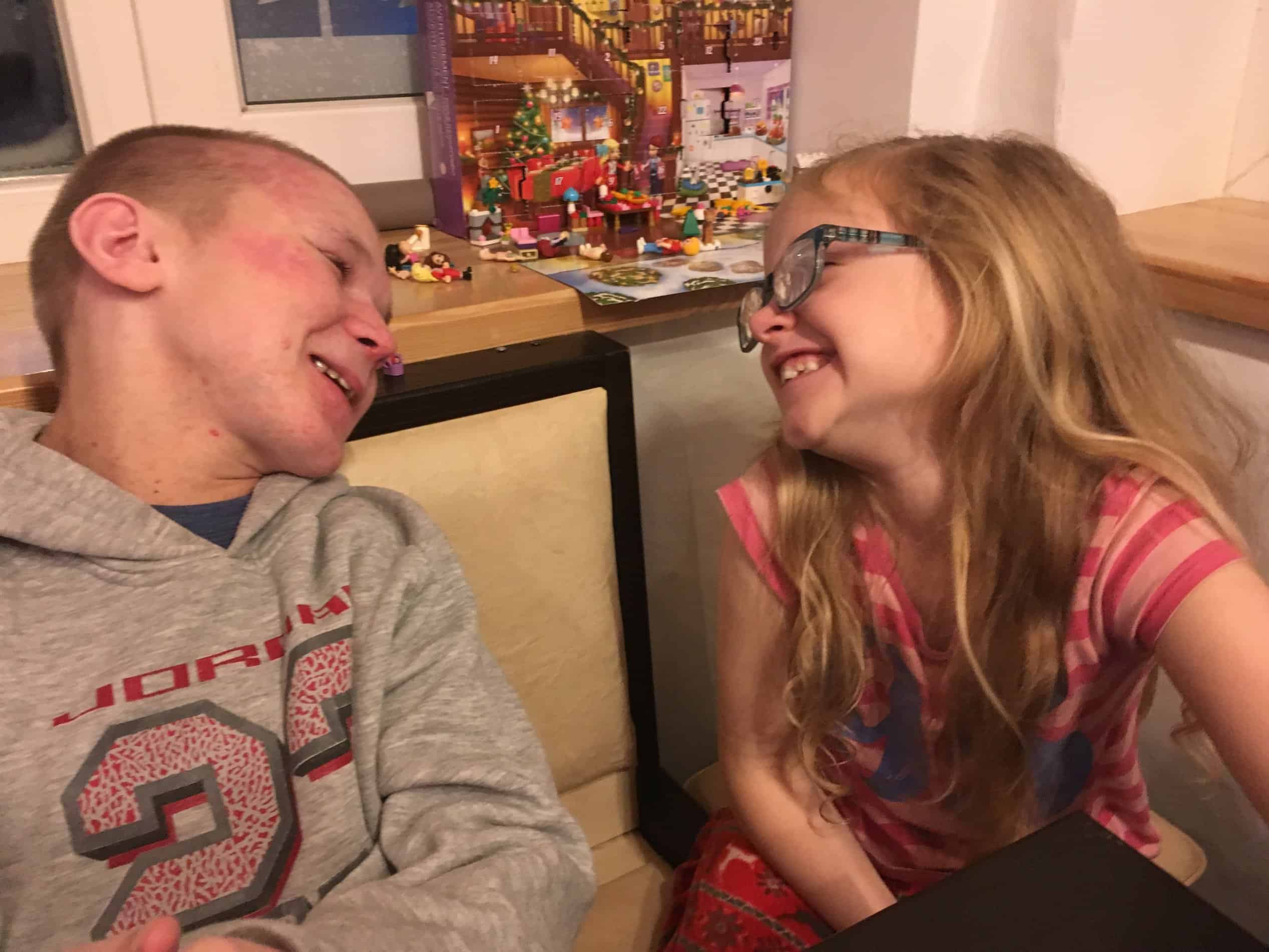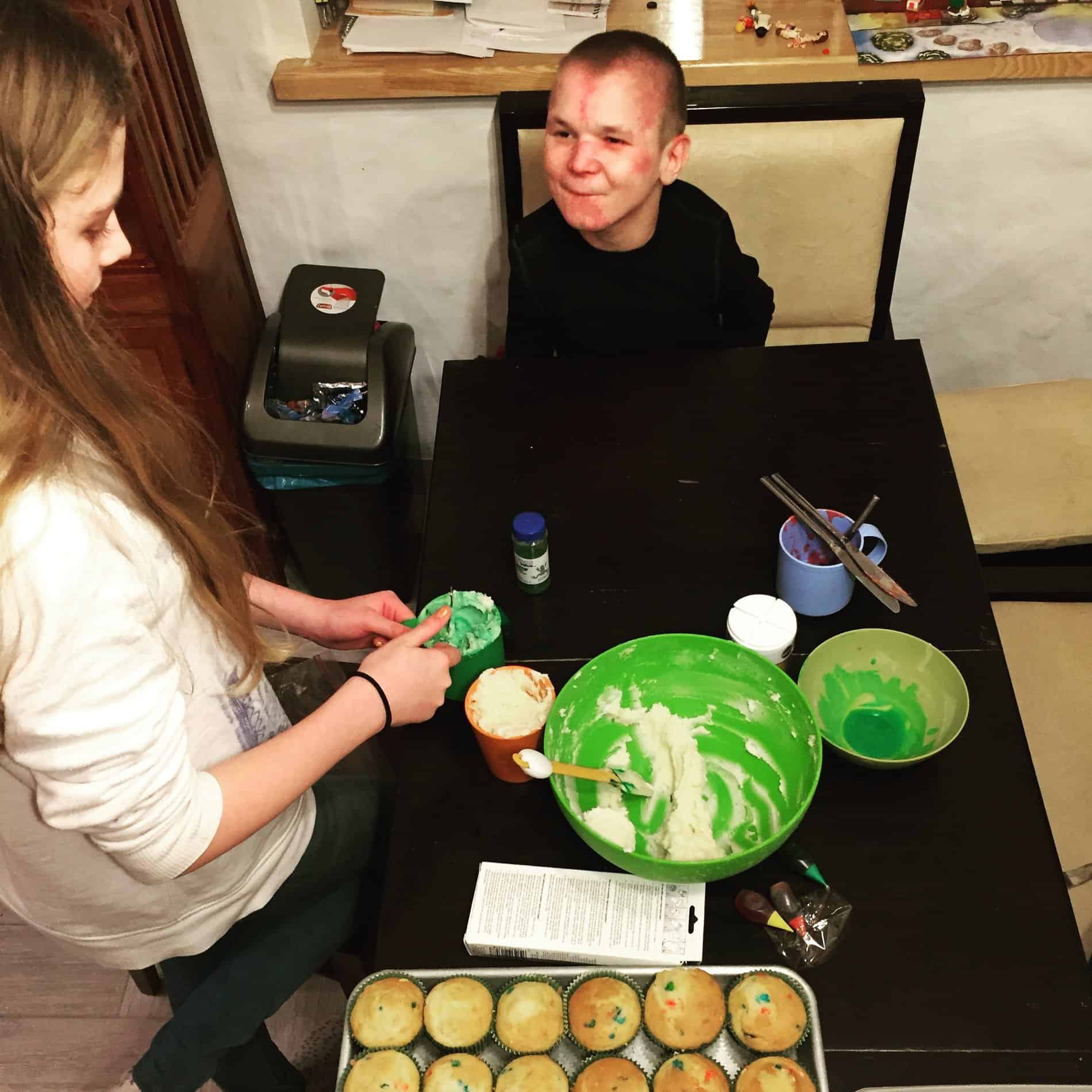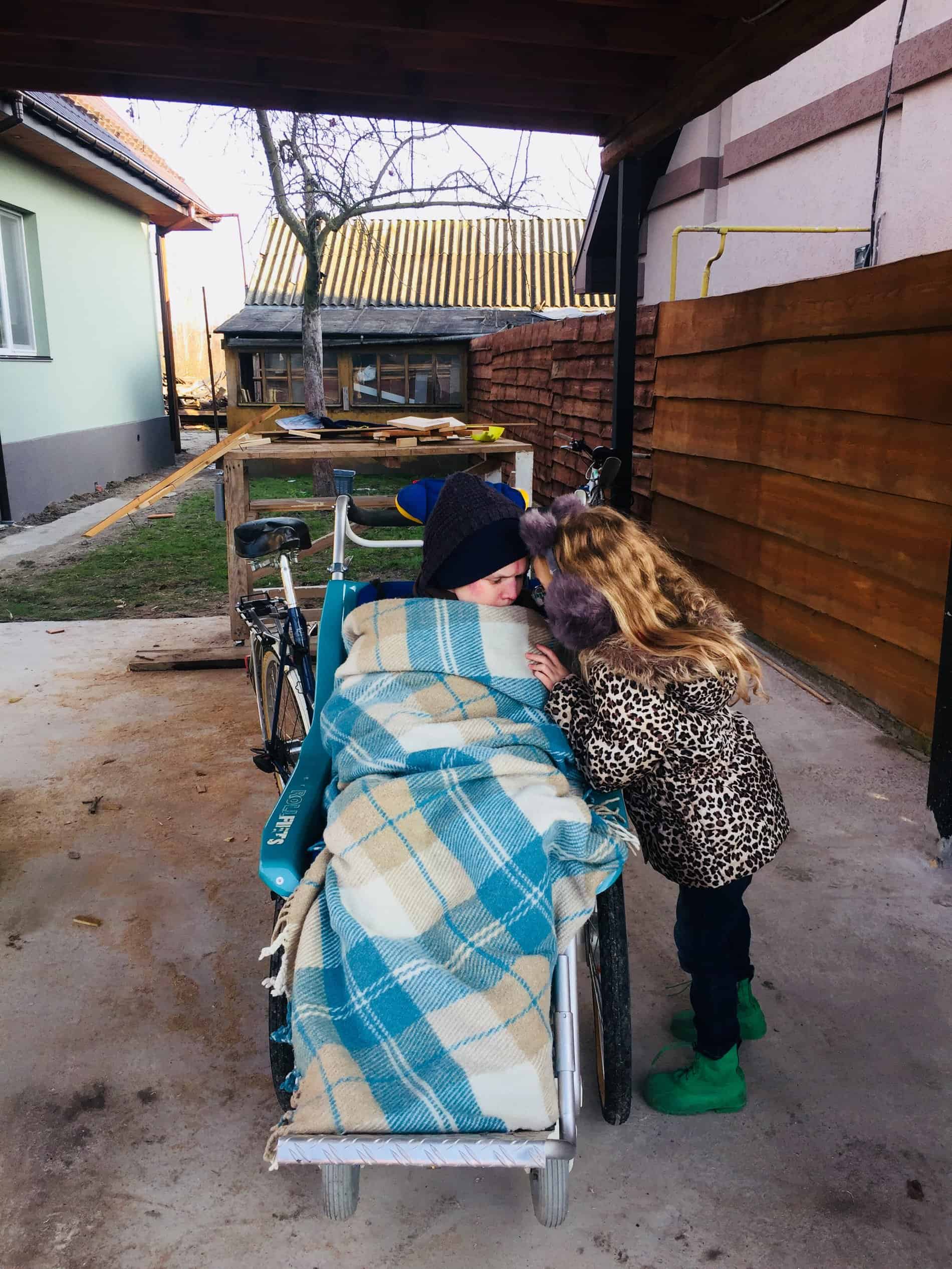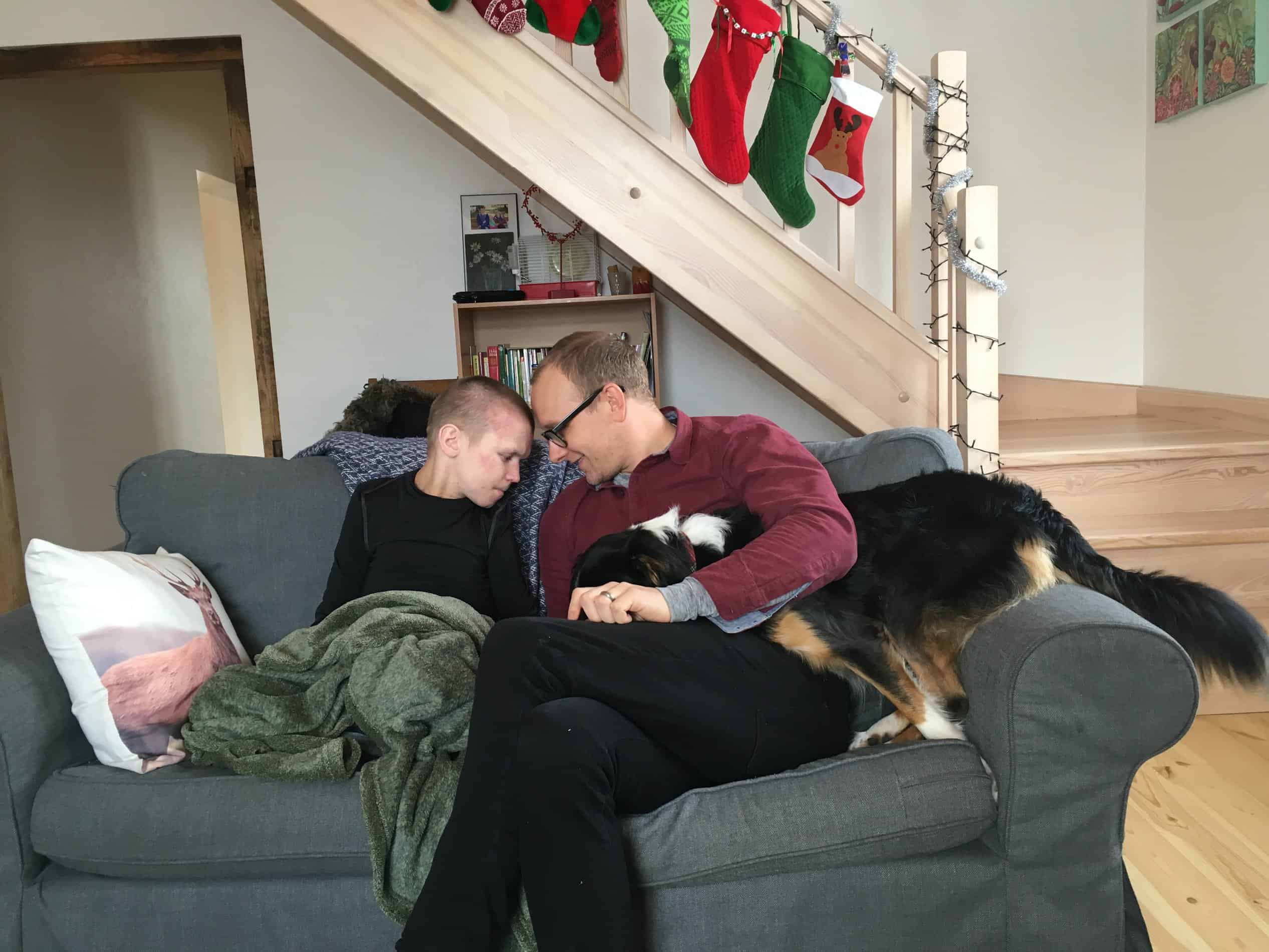Yesterday marked a month since our friend, Boris, came to live with us. The range of emotions has been vast. Too many feelings have been felt and too many thoughts have been thought. It’s good and bad and wonderful and terrible and easy and hard all within the same day. There’s no ABC instruction manual for taking in a broken 25 year-old who has lived a life of abuse and severe neglect. He didn’t come home with manual on how to help him heal or how to integrate him into family or how to, as a family, accept him and the new normal that he brings. We are all learning, and in the learning we are all healing.
We’ve been reading a lot of Jean Vanier these days. The wisdom he has gained over many years of living alongside people with intellectual disabilities is amazingly helpful for us- “The wisdom of tenderness,” in his own words. If you haven’t ever read any of his works I highly recommend them!
“As we share our lives with the powerless, we are obliged to leave behind our theories about the world, our dreams and our beautiful thoughts about God to become grounded in a reality that can be quite harsh. That is where we meet God, God who is Emmanuel, God-with-us. There God is present, hidden in wounded humanity, hidden in the pain of our own hearts.”
-Jean Vanier, The Heart Of L’Arche
That quote sums it up. I can stop writing right now. 🙂
But you know I won’t.
Boris has been fighting for survival for most of his life. He is a true survivor- that’s the only way he is still alive right now. He’s a fighter, and he’s a stubborn little dude as well. Those traits served him well in the institution, and they will serve him well again, but right now, to be completely honest, they are serving to expose the weaknesses in my own heart. The struggle is real, my friends.
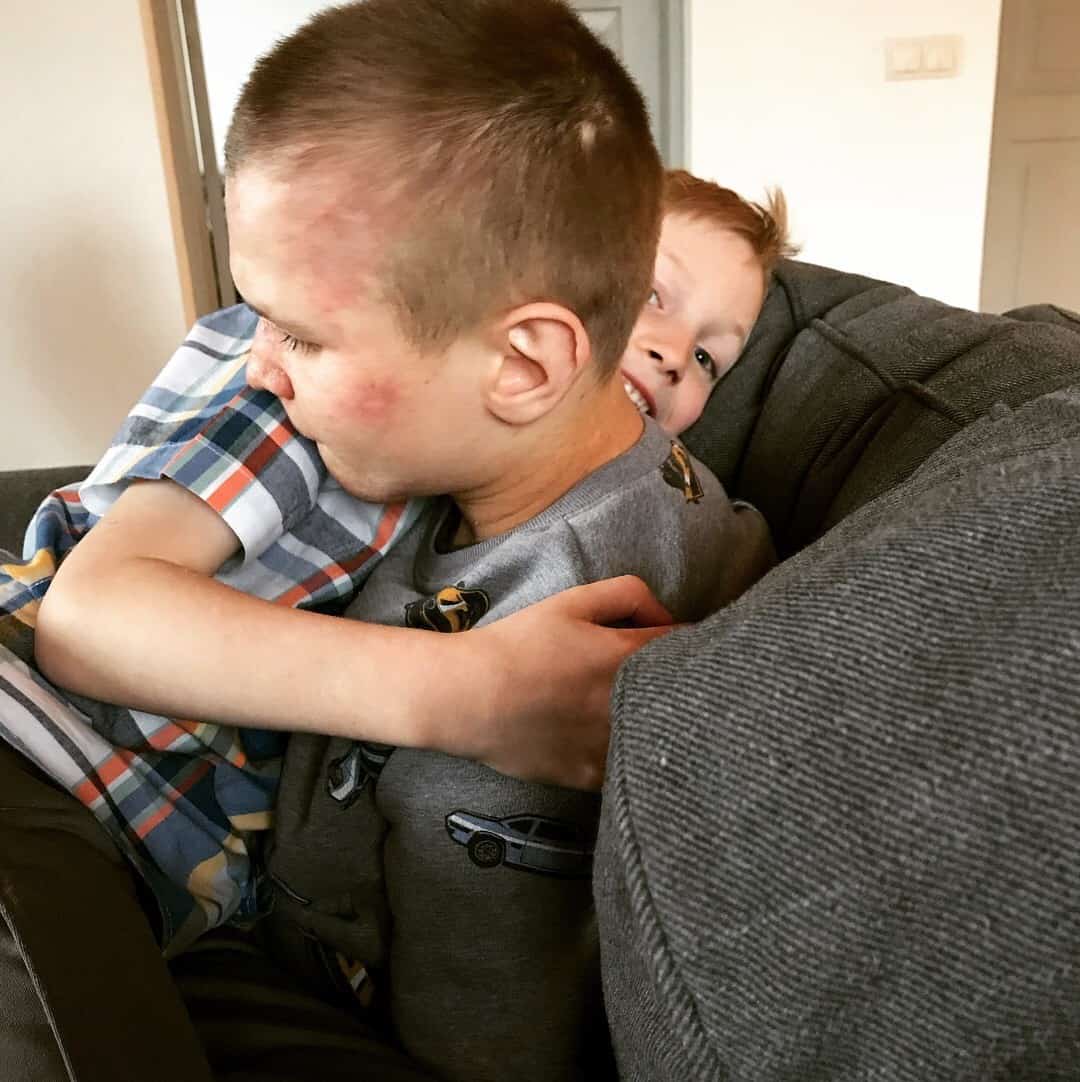
In this next bit Jed gets a little nerdy as to how we understand Boris and what he does to process the world around him.
“For the past 19 years when he lived at the institution the only thing that Boris could do was survive and his survival put him in a state of fear and toxic stress. His life was not one truly lived. He knew what his body needed: food, warmth and safety- and he fought to get those needs met.
That fight and that environment formed the physical shape of Boris’s body, but also the shape of his brain. Our brains are absolutely remarkable at processing how we live as fundamentally social beings.
The physical, social, emotional and spiritual world around us and within us create the context where our brain processes, interprets and informs the rest of the body how to act and react (in that instant and next time).
Our brains are profoundly complex and truly something to be marveled. How our brains function is entirely state dependent. If we are calm, we can think clearly and with full access to our intellectual capability. Think of Elon Musk, sitting in his office, safe, healthy and satiated, dreaming and designing some cool future space travel. Conversely, if we are in a state of terror, we react quickly and complex processing and abstract conceptualization become non-essential and inaccessible. Imagine sitting on the kitchen table, trying to help your kid with his geometry homework while a hungry tiger circles.
Imagine living between toxic stress and terror through your early childhood and on into adulthood, unsure if you will be safe or hurting, wondering if you will get enough food or if your tummy will ache as you try to fall asleep to the sounds of other boys surviving the same terrible reality.
The trauma of daily life and survival is the soil where Boris’s brain grew and deteriorated. Instead of growing, his brain pruned away things that were of no use, the need for friendship and human connection, desire to play, to understand motion and movement, balance, motor skills and the sense of where his body is in the space around him.
He reduced his life to mostly brainstem and cerebella functioning. So imagine trying to process the entirety of your life through the part of your brain meant to maintain core functions, motor skill regulation, simple arousal responses, appetite/ satiety; chances are you might develop some behaviors that would seem strange and maladaptive to others around you.
Boris learned to pull his thoughts to focus, process his feelings, communicate needs and express himself through self-harming behaviors. While being with him in the institution we started seeing him process a bit through his limbic system, laughing appropriately and inappropriately, but development none the less.
Ok, I’ll give you back to Kim.”
Now, instead of just surviving, Boris lives in a world where every need is met, and not only needs, but wants and desires are met as well. Now we have a new struggle. Now Boris must learn to distinguish his wants and desires from his need. Because let me tell you, as a mom who has parented many a toddler, want and desire are not equal to need- even though the screaming 3 year-old may not be able to accurately distinguish the difference. Boris is a bit like a big 3 year-old at the moment- only one that has endured more trauma in his life than any human ever should. He wants things and he wants them NOW. His response to wanting things is the same as his response to needing something, and then the self-harm ensues.
If Boris is excited, he hits himself. If Boris is frustrated, he hits himself. If Boris wants attention, he hits himself. He processes most desires, emotions, needs and requests somewhere between self-harm, disregulated motor skills, laughing, sweating, rocking, increased heart rate and chirps. We have a feeling it’s only going to get worse before it gets better. He has to learn a new way of being, a new way of communicating, a new way of processing the world around him, and at 25 years old that’s a pretty tall order.
The response his self-harm evokes in me is surprising. It’s embarrassing and ugly to admit, but this is real life and we’re real people. Not one of us is perfect- least of all, me. I’m quickly realizing how much I see Boris’ self-harming, or lack thereof as a reflection of my personal success or failure. When he isn’t self-harming I feel good, warm, fuzzy, but when he hits himself I find myself feeling anger, impatience, and even disgust. And Jed just sits there like a zen master…grrrr.
Of course I don’t want Boris to hurt himself! But it’s humbling to realize how quickly my thoughts turn to myself in those moments of him harming himself. I feel failure. I feel disgust. I feel impatient. I wonder if I can really do this for the long haul. I, I, I.
Compassion and empathy have no room to grow in a space filled with selfishness and self-pity. It appears Boris is not the only one in need of healing.
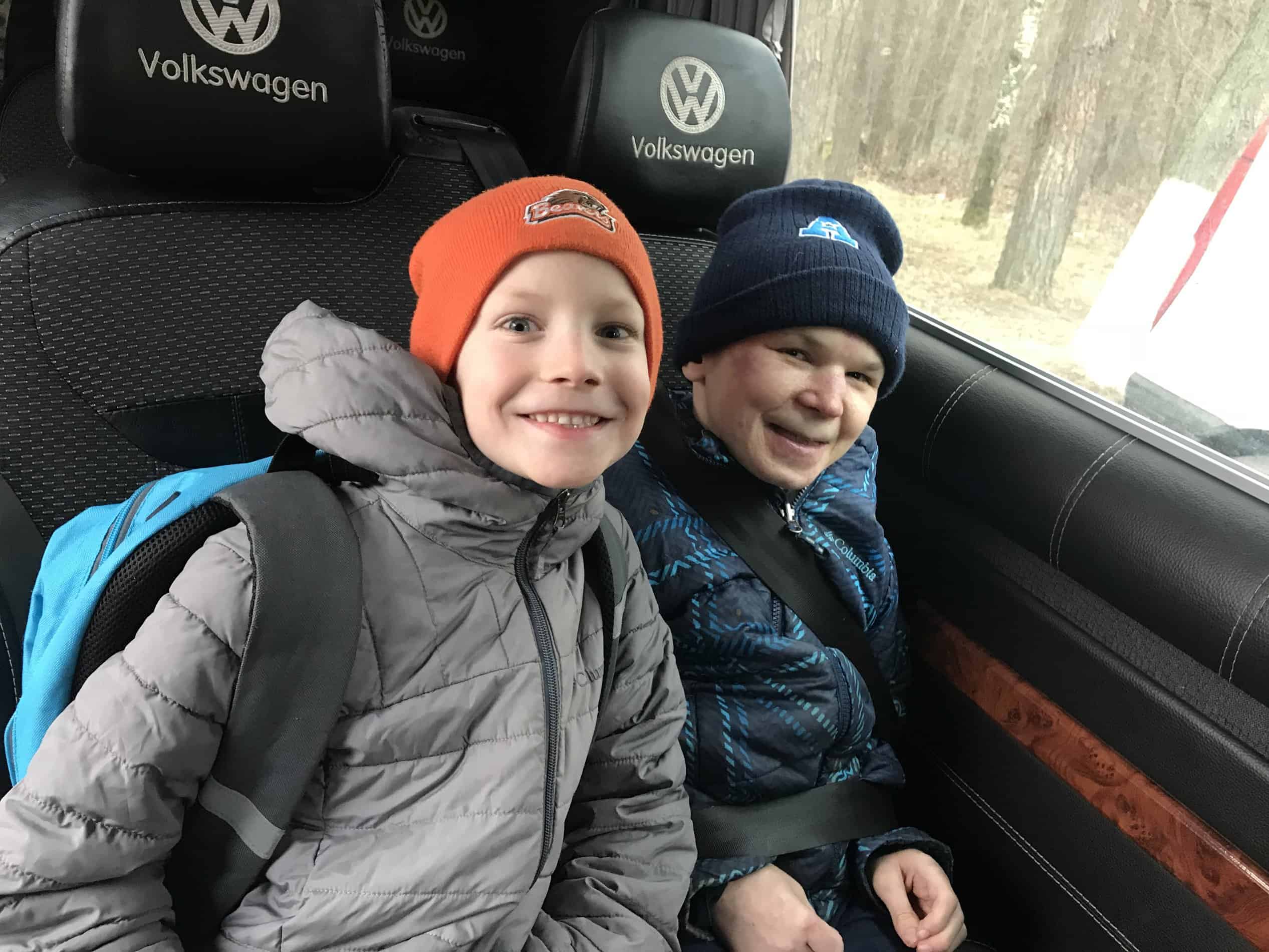
Boris’ brokenness is exposing in us the places in our own hearts that are broken.
In meeting his physical needs that he can’t meet for himself we are finding healing. In the pursuit of finding peace for Boris’ heart and mind, we must rely on the Holy Spirit. We need his wisdom so very much. We need strength, patience and love that can only come from above.
It’s easy, in the hard moments, to wonder if this is what it’s always going to be. Are things going to get worse and then better? Or are things just going to get worse and stay worse? No one can say. But does it make a difference? Is Boris any less worth it? Is the YES only worth it when it comes with obvious success?
What if twenty years from now it still takes 2 of us for every diaper change just to keep Boris safe? What will my soul be singing in those moments? Will I have found contentment in the simple act of serving? Will I be able to say “It is well with my soul”, or will I be bitter and resentful that my life took this turn?
The sooner we learn to truly walk in the Spirit, the better- for us, for our children, and for Boris. The sooner we stop looking at our own perceived successes and failures and start finding joy in the simple act of caring for our friend, the better.
This is a journey we can not walk in our own strength. We will totally screw it up. So each day we are learning and breathing and (hopefully) changing.
In the practical day to day of life with Boris the journey looks like a patterned consistent routine, loads of sensory integration, boundaries, creativity and good old fashioned parenting. When Boris is hitting himself because he doesn’t get what he wants he has to calm his body down, and only then, when he’s more calm does he get the thing he wants. It means we have to maintain that calm presence, hands on him at all times. Sometimes it means leaving the table 3 times during a meal. Sometimes it means it takes 30 minutes to get out the door for a walk. But Boris will learn. Over time trust will build, new neural pathways will be built, and more understanding will come.
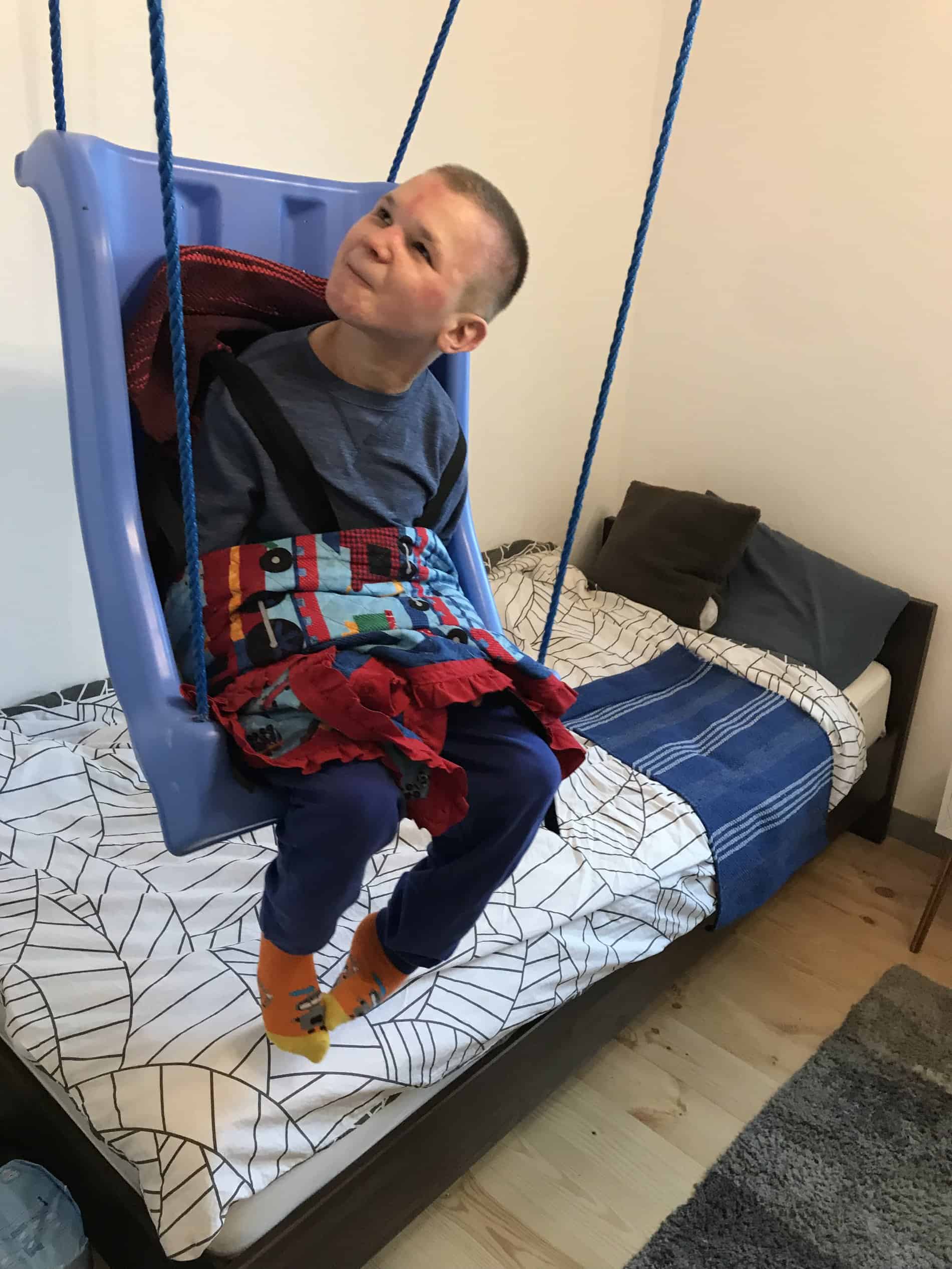
When I choose empathy, when I remember where Boris came from and all he has endured and allow my heart to break again and again, rather than hardening my heart in the face of monotony and frustration, THEN healing can come. And when my heart is open to it’s own healing, only then can I be an instrument of healing to my dear friend.
So our friend is a challenge to us and a blessing to us in ways we could not have foreseen. May our hearts remain open and may the hard parts return to softness. May each of us see the loved ones in our lives as the beautiful treasures they are- worthy of our time, our love, our sacrifice, and our dedication.
BeLOVE[d]
